Last updated on July 8th, 2024
Featured image: Sheikh Zayed Mosque in Abu Dhabi, one of 30 less-travelled places recommended by women, for women in 2024 | Photo by lizzykomen on Envato
30 less-travelled places recommended by experienced women travellers
by Carolyn Ray
On the eve of JourneyWoman’s 30th anniversary in 2024, we invited some of our most well-travelled writers, advisors and partners to help us craft a very special list of their favourite less-travelled places for women in 2024. We’re calling our list “30 Less-Travelled Places for Women in 2024”. Careful thought has been given to off-season travel, sustainability, accessibility and personal safety, and ways that women can stay longer in one city, island, country or region. With these selections, we hope to inspire a deeper sense of connection among the mosaic of humanity – showing respect and compassion for the connection between the sun and the earth, between animals and humans, and nature and our own wellness.
We hope our list inspires you to think differently about not just where we travel to, but how we can rediscover our sense of adventure through travel. In the midst of so much conflict in our world, travel offers us the opportunity to learn. To expand our understanding of our world. To connect with cultures and communities vastly different than our own. Above all, to embrace the self-discovery and wisdom that comes with stepping into the unknown. It is only when we find the courage to leave the comfort of our homes that we can witness the majesty of ancient wonders, be warmly welcomed by people in a small community, hold hands with curious children or experience nature and wildlife that literally takes our breath away. Travel reminds us that we are connected.
In keeping with JourneyWoman’s ethos of sharing first-hand experiences, these 30 places are ones that our well-travelled group has actually travelled to. Some, like Hiroshima, Japan, may surprise you with its reinvention as a city of peace. Others, like the Arctic, may inspire you to pull out a map and plot a course north. You may have already visited some of our more iconic choices like Edinburgh or Istanbul, but you might wonder if you should return and spend more time there. If you’re not feeling the urge to go too far from home, we have some thoughts on that too, starting with exploring your own backyard. If you’re dreaming about places to go in 2024, we hope this will inspire you to make your dreams happen. As we’ve learned, time can pass in the blink of an eye. It’s up to us to make the most of it.
30 Less-Travelled Places for Women in 2024
Click a destination or scroll to reach the entire list!
Reminder: Our world is a volatile and ever-changing place. Check travel advisories before you travel and make sure you have travel insurance.
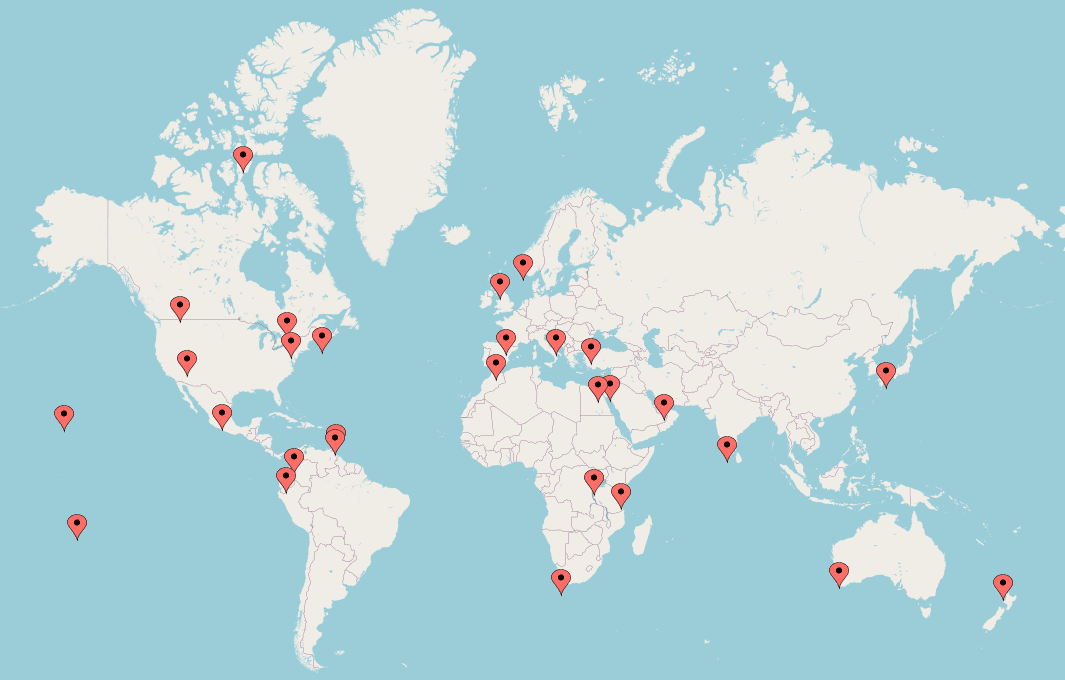
Our 30 less-travelled places for women in 2024 spans the entire globe! / Map created via Mapcustomizer.com
Less-travelled places for women in North America
1. The Arctic
Recommended by Franny Bergschneider, Polar expedition leader
The Arctic is one of the most remote and sensitive regions on the planet where wildlife thrives above and below the surface. Covering the Arctic Ocean, adjacent seas, and parts of Canada, Greenland, Finland, Iceland, Norway, Russia, Sweden and the United States, this fabled region is a showcase for the power of nature, the midnight sun and Inuit culture. The ecological significance of the Arctic is witnessed in Indigenous art, traditional food, throat singing and storytelling.
For those courageous enough to visit, you’ll witness polar bears and whale sightings, coupled with meaningful Inuit community visits and exchanges with local women. The Arctic is a region best seen in the spring and summer months, when the historical and all-natural wonder of Greenland, Baffin Island and the Northwest Passage’s icebergs-strewn landscape serves as an open-air classroom with onboard biologists, geologists, bird experts and Inuit staff, not to mention the opportunity to see the Northern Lights, which inextricably connects us to the universe in a way that no other experience in the world can offer.
How to make it a longer stay: Travel on a small expedition ship with Aurora Expeditions, Swan Hellenic or Wild Women Expeditions, or find a small group tour in Greenland, Iceland, Norway or Northern Canada.
Join us on a special webinar with Franny on January 11, 2024 at 2 pm ET to learn more about The Arctic. Sign up here.
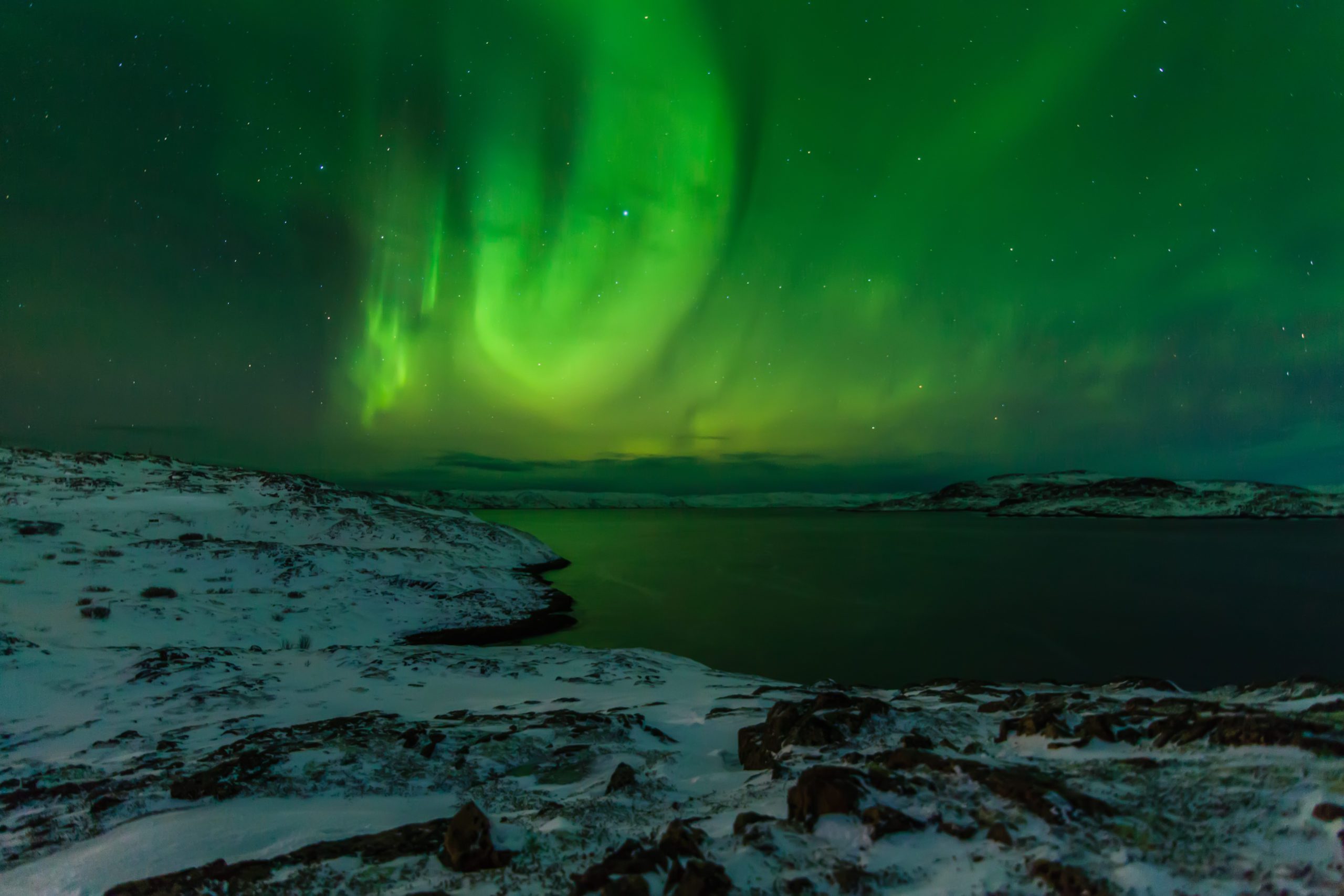
Northern Lights dance on the shore of the Arctic Ocean
2. Banff, Alberta
Recommended by Carolyn Ray, Editor, JourneyWoman
With its glorious mountains and jagged peaks, Banff is one of those places that is restorative and accessible all year round. Banff boasts over 1,000 glaciers, four UNESCO World Heritage sites, and Banff National Park, Canada’s first national park and the world’s third. To experience Banff at its winter wonderland best, try mountaintop dining at the Sky Bistro and ice skating in nearby Lake Louise. Seek out Indigenous leader Brenda Holder from Mahikan Trails, who offers medicine walks in the forest, demonstrating natural methods of healing, from silverberry wolf willow, to white spruces, juniper, buffalo berry and even lichens.
In the summer, hike the Plain of Six Glaciers Trail and enjoy a cup of tea and fresh-baked pastry at the trail’s end at the historic Plain of Six Glaciers Teahouse in Lake Louise, or try horseback riding in Banff’s wild backcountry. One natural wonder that will take your breath away is the surreal, cobalt-blue waters of Moraine Lake. And don’t miss COW’s ice cream and a walk along the Bow River, great in any season!
How to make it a longer stay: Splurge a little and stay at the Fairmont Lake Louise or Fairmont Banff Springs.
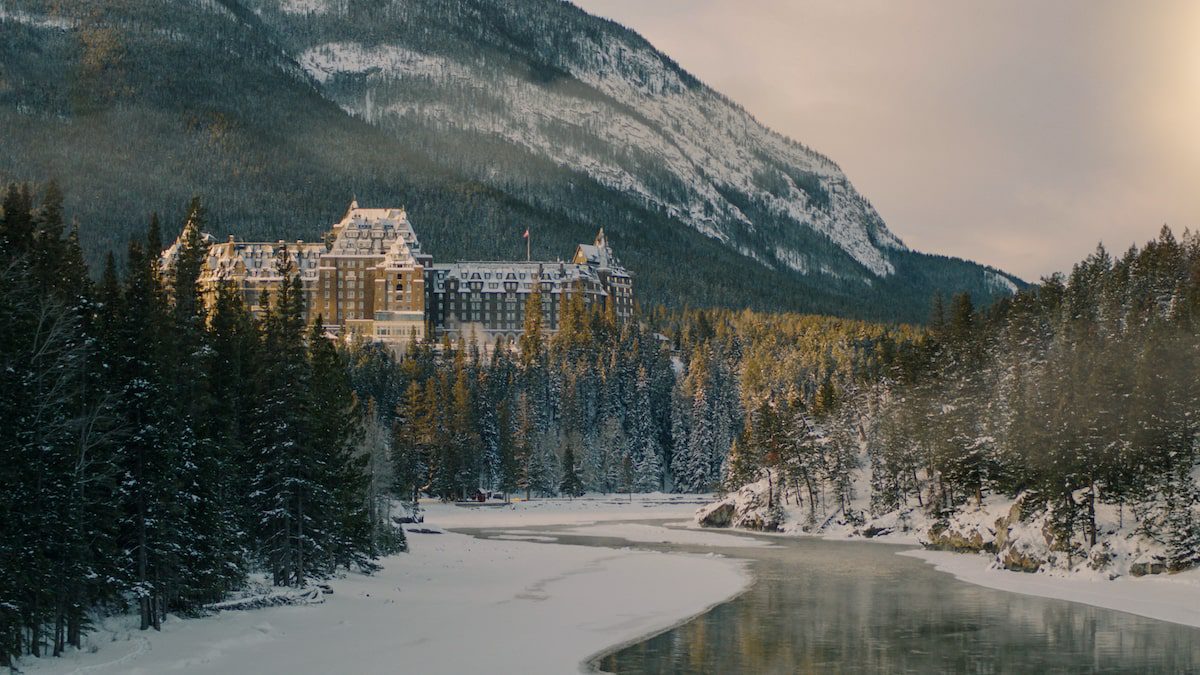
The Fairmont Banff Springs Hotel, the “castle in the sky” in Alberta, Canada / Photo provided by Fairmount Banff Springs
3. Yarmouth, Nova Scotia, Canada
Recommended by Sandra Phinney, JourneyWoman writer
Canada’s eastern province of Nova Scotia offers beaches, parks, historical sites, lighthouses, amazing food and great shopping, even in small communities. There is also a diversity of cultures: Celtic, Indigenous, Black African, French Acadian and Scots with lots of opportunities to have cultural experiences. Combine that with a rich and vibrant arts and music scene, you can be busy or as laid back as you want!
Life in Nova Scotia is governed by the rise and fall of the tides and the wind and water. While it may be the second smallest province geographically, it is big on lighthouses. While the newly accessible Peggy’s Cove may be one of the most photographed Nova Scotian lighthouses, there are 180 to explore on Nova Scotia’s Lighthouse Route along the South Shore.
Want to disappear into an old-growth forest and hunker down in an O’Tentik for a few days? Check! Stay in seaside cabins or a five-star hotel? Go on a fishing boat? Take part in a rousing music festival? Check! Bonus: Nova Scotia has a Dark Sky designation and you may see more stars in one night than you’ve seen in a lifetime. Oh yes! And lobster like nowhere else in the world.
How to make it a longer stay: Rent a car here and explore more of Nova Scotia’s small towns like Digby or the Cliffs of Fundy Geopark. Join an immersive art tour with Rue Pigalle, or find the perfect place to stay here.
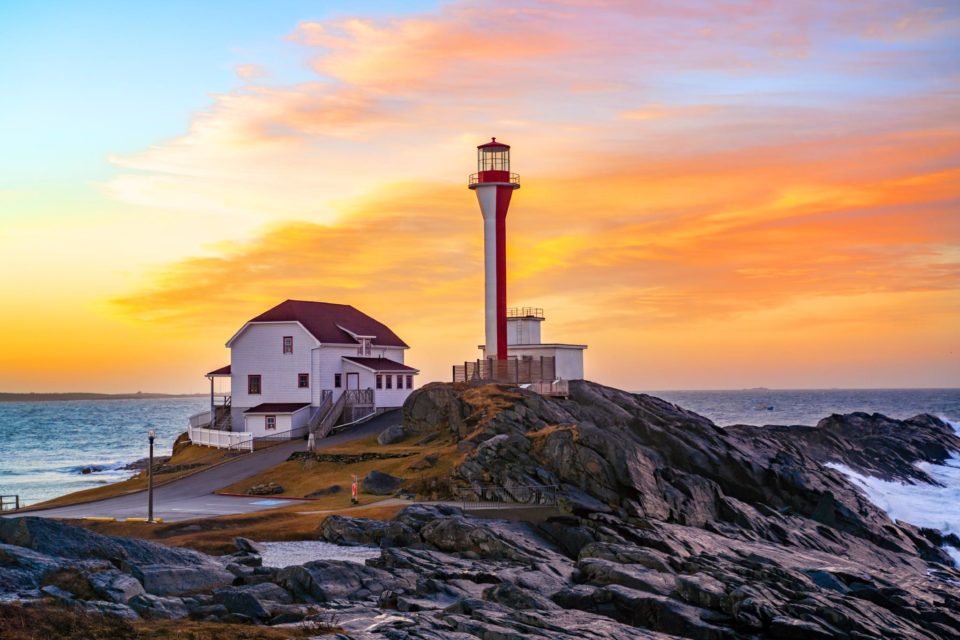
Discover the lighthouses along the Lighthouse Route from Yarmouth, like Cape Forchu Lighthouse | Photo provided by Tourism Nova Scotia
4. Cedar City, Utah
Recommended by Diana Eden, JourneyWoman writer, Solo travel over 80
If you are anywhere in the western part of the United States, one charming place to visit is Cedar City, Utah, for the Shakespeare Festival in the summer. Cedar City is a lovely small town and hosts a very high-level theatrical festival at their Globe-like Theatre. At their other theater locations, they also present plays and musicals. There are daily singing and dance shows on the greens, seminars, and backstage visits.
The town also offers plenty of places to eat, both upscale (one in the old railroad station) and casual, and a winery and tasting room in the main part of town. There are small hotels and some picturesque vintage homes to rent through Airbnb and VRBO. The town is 170 miles north of Las Vegas and a short drive away from Zion and Bryce Canyon National Parks, and Brian Head Ski Resort.
How to make it a longer stay: Take a road trip to small towns in the US, including ghost towns in Nevada, get off the beaten path in Las Vegas or explore the state’s national parks with Trafalgar. Book your car on rentalcars.com and find a place to stay on Booking.com here.
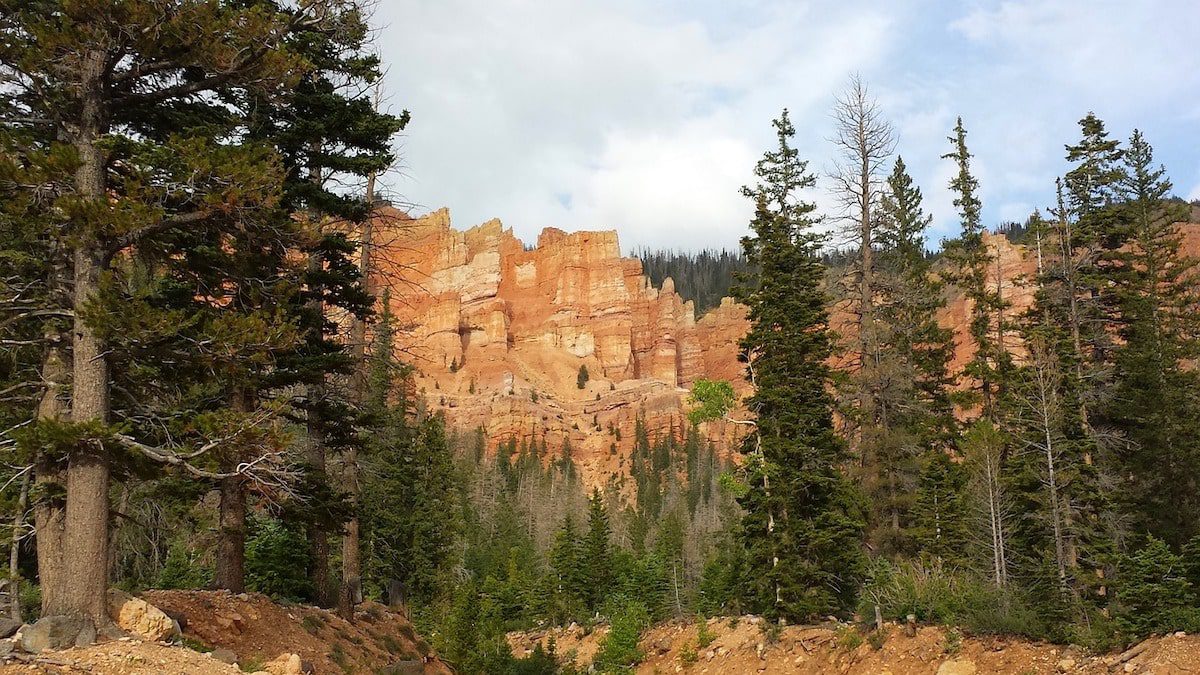
Stunning cliffs outside Cedar City, Utah / Photo by kathyblain on Pixabay
5. Finger Lakes, New York State
Karen Gershowitz, JourneyWoman writer, Solo travel + Quirky places
If you once took glass for granted, a visit to the Corning Glass Museum, located in the Finger Lake region of New York State, will change that forever. The museum is huge, there’s no way to cover everything in a single visit. But no matter how little or much you see of the exhibits, it’s worth a visit.
Watkins Glen, about 30 minutes north, is situated at the tip of Seneca Lake, one of the 11 Finger Lakes. You can hike or walk on the Watkins Glen trails or take a cruise around the lake.
A collection of thirty-five nearby wineries are collectively known as the Seneca Lake Wine Trail. The wine is surprisingly good, and the drives between them are beautiful. At the end of the day, be sure to visit the Spotted Duck, a creamery serving a flight of ice cream. Best flight of the day!
If you want to travel just a bit further, visit Seneca Falls, a central location of the women’s rights movement that is filled with monuments and exhibits.
How to make it a longer stay: Book a rental car and visit other small towns in New York and find at a locally owned hotel on Booking.com here.
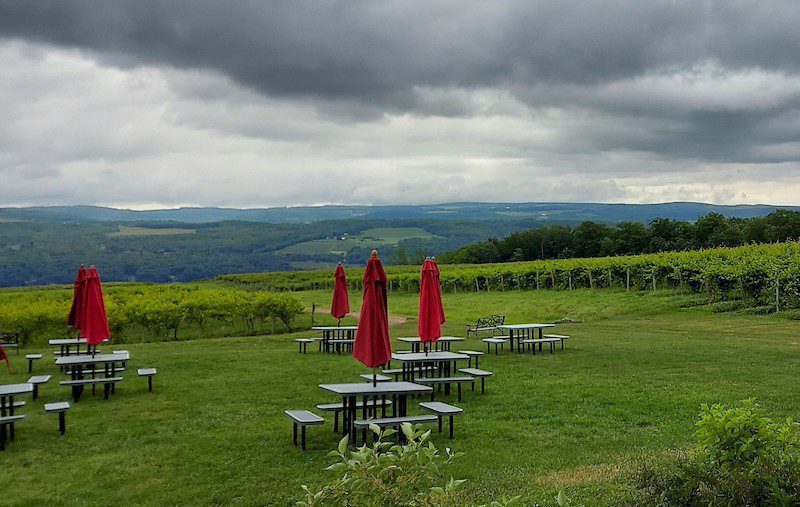
Scenic views overlooking the Finger Lakes / Photo by Karen Gershowitz
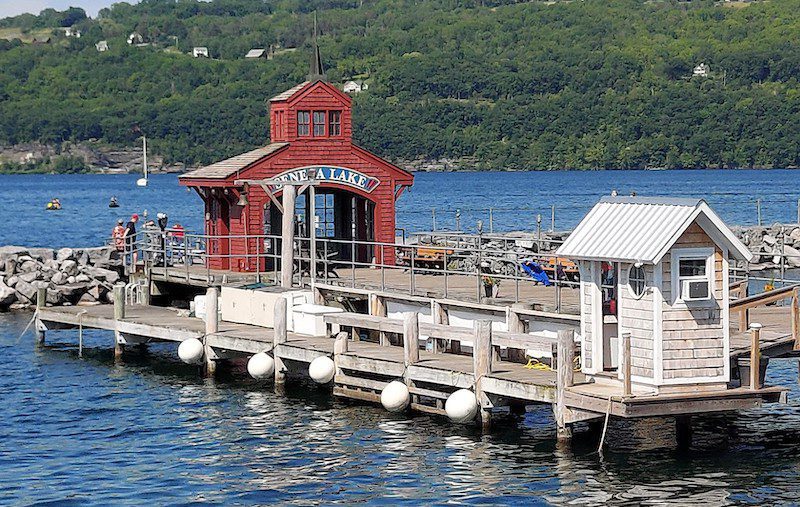
Seneca Lake, one of the 11 Finger Lakes / Photo by Karen Gershowitz
6. Maui, Hawaii
Recommended by Shawna Robins, JourneyWoman Women’s Advisory Council member
After living on Maui for five years, I always tell women that the energy on Maui will amplify the energy you bring in. If you bring worry, stress or fear with you, then Maui will amplify it 10x. The same goes for love, joy and gratitude. Maui is a place where you can experience heightened intuition, immense beauty, deep restful sleep, nurturing food and the opening your heart. Maui is a young island – only 1.5 million years old, but it offers deep makana (gifts) and wisdom to those who are open.
The island is deeply scarred by the wildfire on August 8, 2023 that destroyed 2200 buildings and killed 99 people. The west side of the island (which includes Lahaina, Ka’anapali, Napili and Kapalua) was impacted most severely. Upcountry (Kula, Olinda, Makawao) was also impacted by fires and still has no clean drinking water available for residents and guests. It was a tragic event for all Maui residents and those who love the island.
If you are planning to travel to Maui, come with an open heart and an open mind. Maui is resilient, strong and has a tight-knit community that can benefit from travellers who won’t just receive the glorious sunrises and healing water but will also give back with kindness and aloha (love). Make your first stop at Paia Fish Market in Kihei for a grilled Ono plate (Ono means delicious and is a snapper-type white fish) with a side of rice and coleslaw.
The Hawaiian Island of Maui has a feminine energy that can be felt from the moment you exit the plane and walk down to the open-air baggage claim area. The soft trade winds cool your skin while the scent of plumeria flowers calms your soul. Maui feels like a safe, warm hug.
How to make it a longer stay: Join Girls’ Guide to the World for a mindfulness retreat, rent an apartment on VRBO or volunteer with Maui Strong.
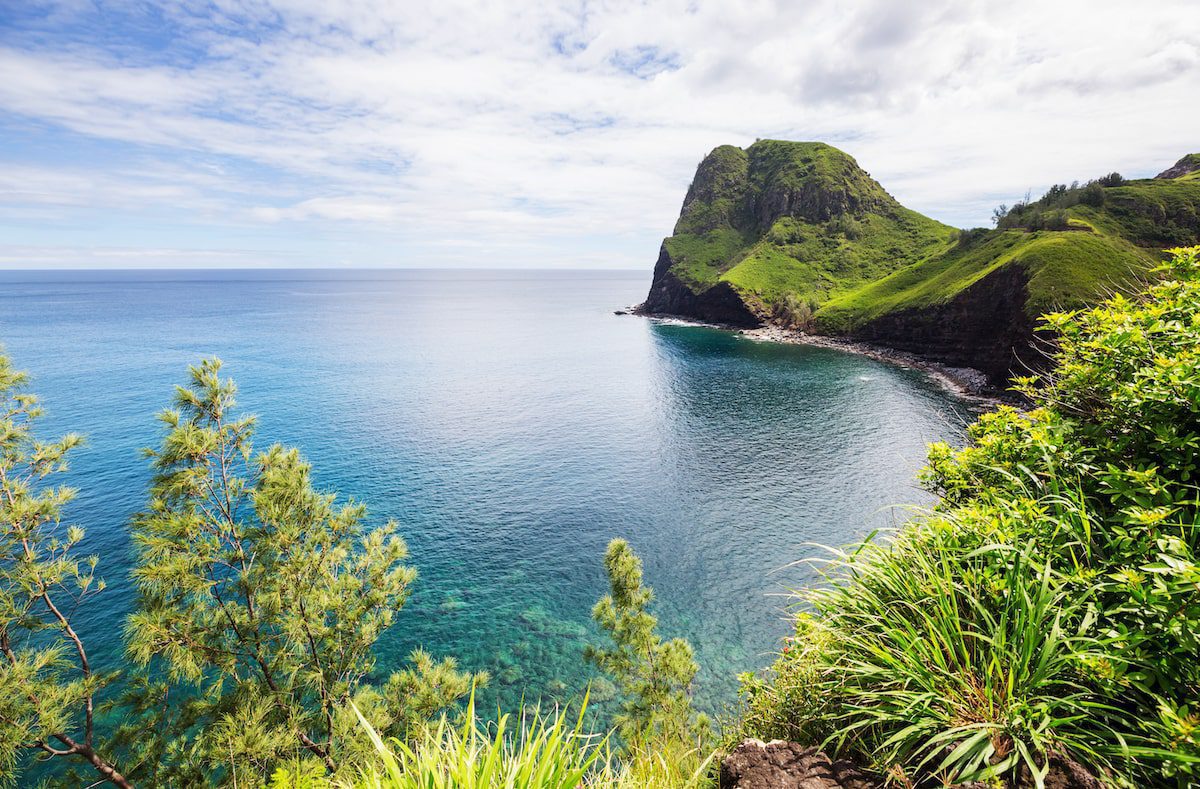
Lush vegetation is everywhere to be found on Maui / Photo by Galyna_Andrushko on Envato
7. Abitibi-Temiscamingue, Ontario/ Quebec, Canada
Recommended by Sandra Phillips, JourneyWoman writer
Once you hear the name Abitibi-Temiscamingue, it kinda sticks in your head. Located in Canada, about 250 miles north of the US border, you might think you’d be in the middle of nowhere. To get the gist of the beauty, sheer solitude and unadulterated expanse of the land, you’ll need to climb the 100 ft high Temagami Fire Tower for a look-see over Lake Temagami.
Surprise – there is a micro-climate in this area which supports all kinds of farming. Take a wagon ride through a bison herd at Pierre Belanger’s Bison du Nord family-run ranch. Thornloe Cheese put this area on the map back in 1940 when Rene Laframboise started making his heritage cheddars. Make sure you try the caramelized onion and horse radish one, and the local haskap berry, in jam form – it’s high in vitamins and antioxidants. There are other secrets here too, including Canada’s largest house, the 65,000 sq. ft. ultra-modern Peter Grant Mansion or the absolute darkness of a silver mine at the Cobalt Mining Museum Colonial Addit Tour.
On the Quebec side of Lake Temiscaming at Fort Temiskamingue, immerse yourself in Obadjiwan indigenous culture. They, of course, were the travellers way before we were!
How to make it a longer stay: To really get away from it all, you can rent the whole Glamping Island in the middle of Lake Temiscaming. Up to 12 people can rent the five elegant sites, and it comes with your own kitchen. The fun is up to you.
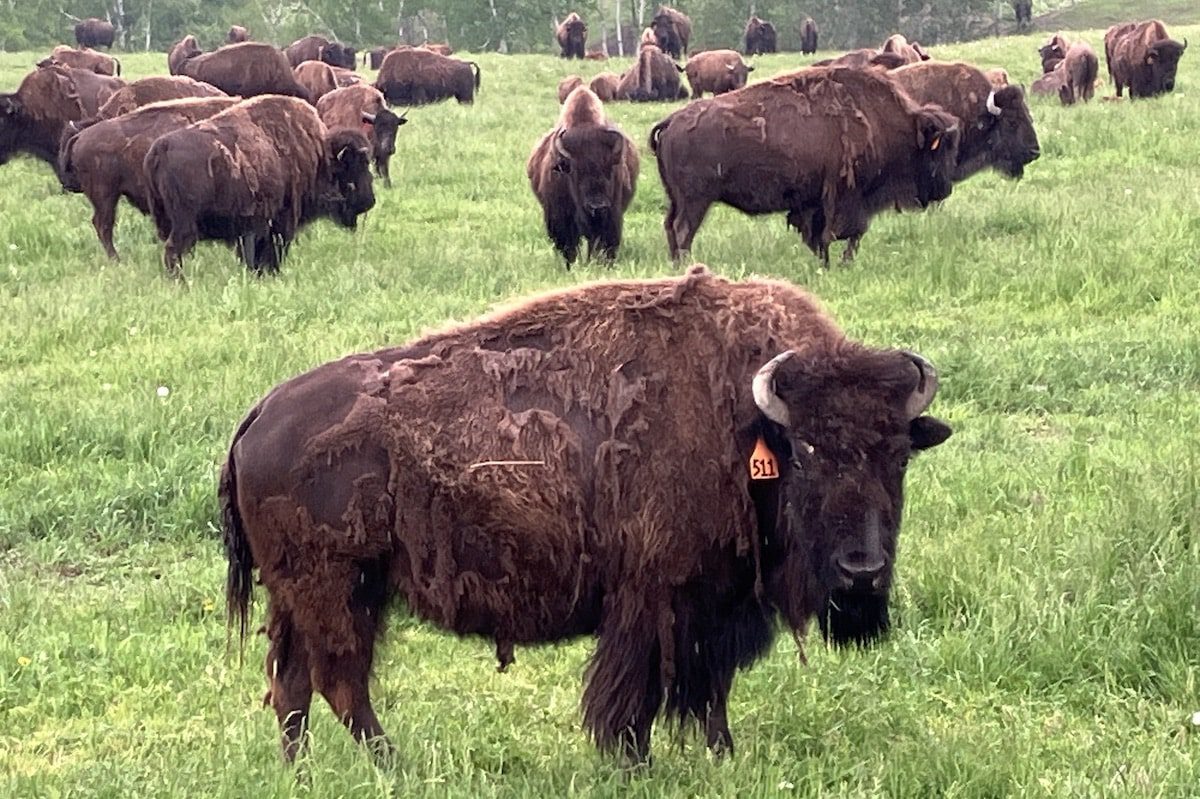
Going eye to eye with a bison at Bison du Nord / Photo by Sandra Phillips
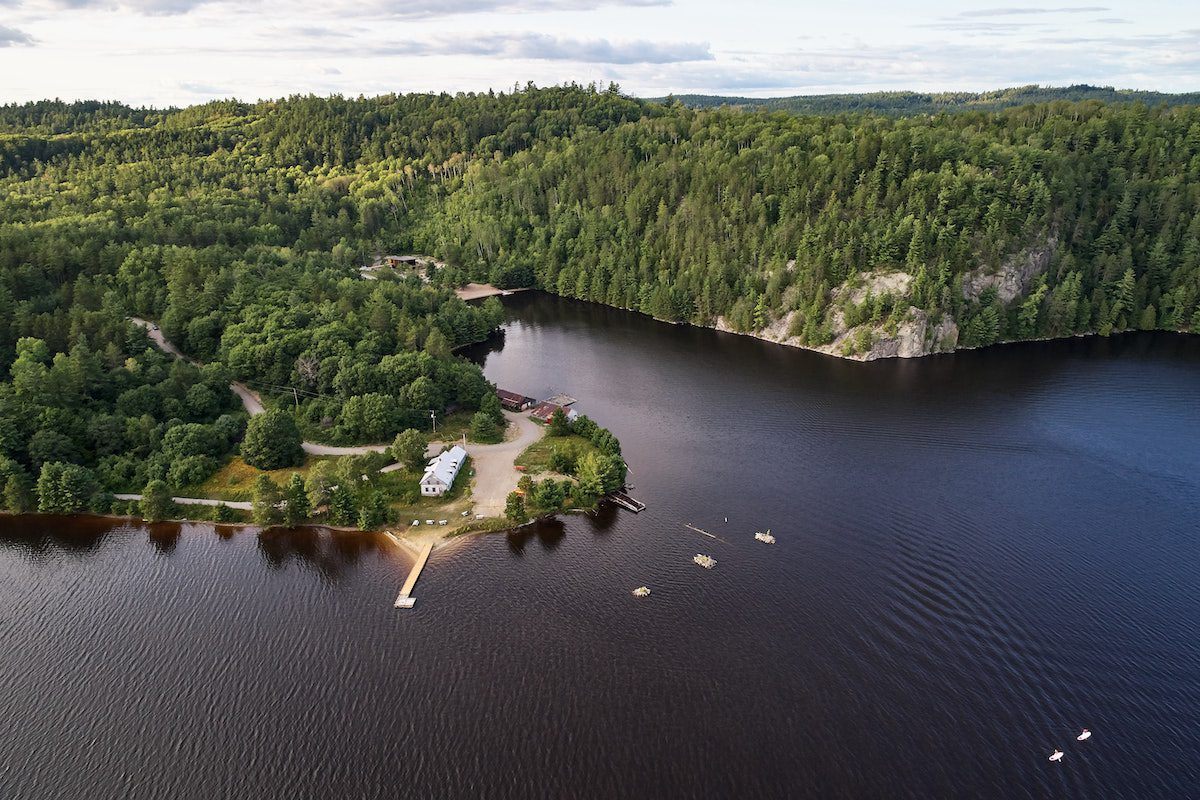
Scenic views in Abitibi-Témiscamingue / Photo by Louis Jalbert, provided by Abitibi-Temiscamingue Tourism
Less-travelled places for women in Asia and Oceania
8. Hiroshima, Japan
Recommended by Norie Quintos, member of JourneyWoman partner Adventure Travel Conservation Fund (ACTF)
In 1945, the US dropped the world’s first atomic bomb on the Japanese city of Hiroshima, obliterating some 78,000 people and unleashing a radioactive weapon so potent it sickened and killed inestimable numbers more for generations. Miraculously, what emerged from the ashes was a new city bent toward regeneration, not retaliation, and on finding peace, not making war.
In the current world climate of natural and manmade disasters, there is no more relevant place to visit than this city of hope, a symbol of the best of humanity overcoming the worst. The Peace Park complex, a UNESCO World Heritage site, is a place of remembrance. The museum and monuments play a crucial role in humanizing the magnitude of the event. More than anything it holds the hope of the children of Hiroshima, Japan, and throughout the globe—a powerful reminder of the true cost of war, and especially nuclear war. On the stone tablet under the bell of the Children’s Peace Monument is written, “This is our cry. This is our prayer. For peace in the world.”
It may come as a surprise, but 78 years later, Hiroshima is a lively modern city known for its food. Leave room in your belly for the city’s version of okonomiyaki, a layered savoury pancake. It also has a second World Heritage site, the Itsukushima shrine on the island of Miyajima. The large red ceremonial gate that seemingly floats in the bay is one of Japan’s most iconic images. It’s part of a complex that makes up a waterside Shinto shrine dating from the 12th century. Together they illustrate the Japanese concept of beauty, shinden-zukuri, which marries nature with human creativity.
If you do go, take the time to learn something about the culture, and drink in the beauty created when humanity is at one with nature. Don’t just do it for the ‘gram.
How to make it a longer stay: Join a small group tour in Japan with Wild Women Expeditions, Girls Guide to the World or Trafalgar.
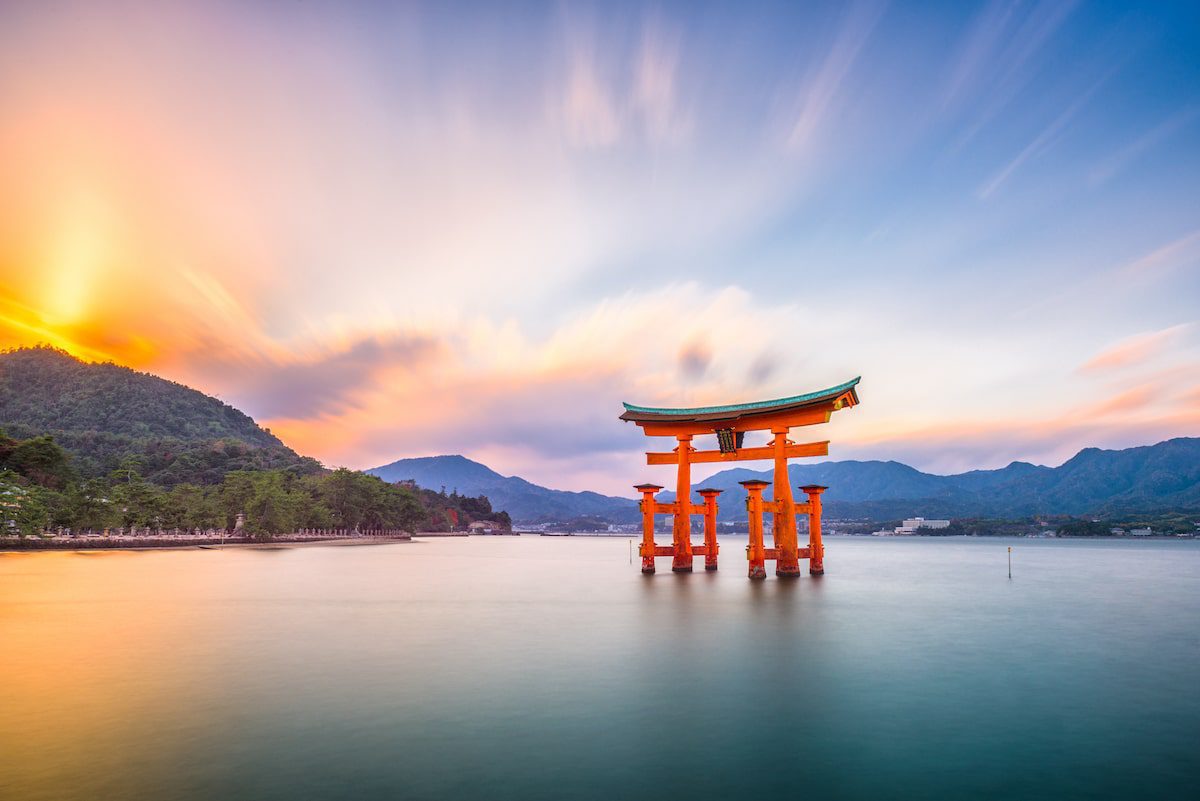
Itsukushima Shrine in Miyajima, Hiroshima / Photo by SeanPavone on Envato
9. Kerala, South India
Recommended by Mariellen Ward, JourneyWoman Women’s Advisory Council member + Solo traveller
Lush, tropical Kerala is known as India’s soft landing. A gentle state in South India with a rich culture and white sand beaches, Kerala has a lot to offer women.
From the historical port city of Cochin to the languid backwaters, and from the jungles of Periyar Wildlife Sanctuary to the tea plantations of Munnar, there’s much more to Kerala than beautiful beaches. It’s also the home of Ayurveda, traditional Indian medicine, making it an ideal wellness destination. The award-winning Kerala Responsible Tourism Mission is hailed as a world leader and offers many authentic cultural experiences, with a mission of “making better places for people to live in and better places for people to visit”.
How to make it a longer stay: Join a small group tour with with India for Beginners, Insight Vacations or Inverted Atlas.
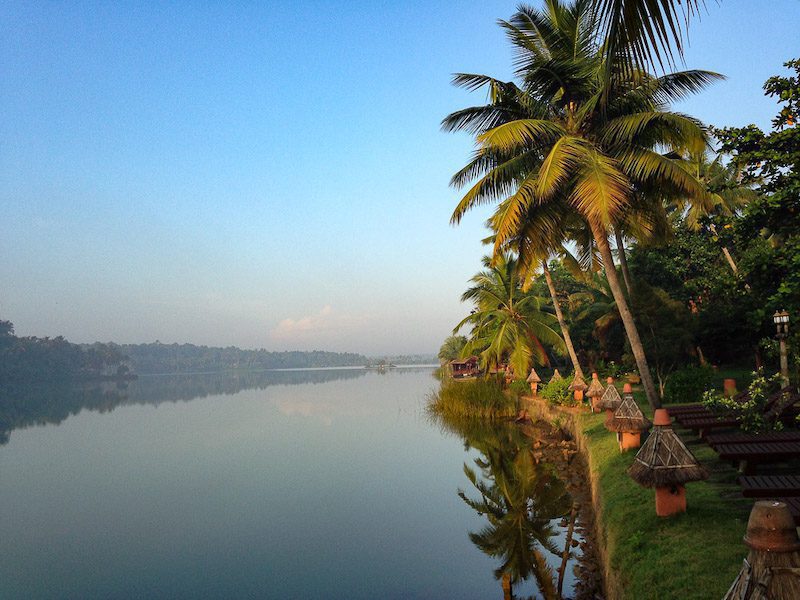
Kerala River in India / Photo by Mariellen Ward
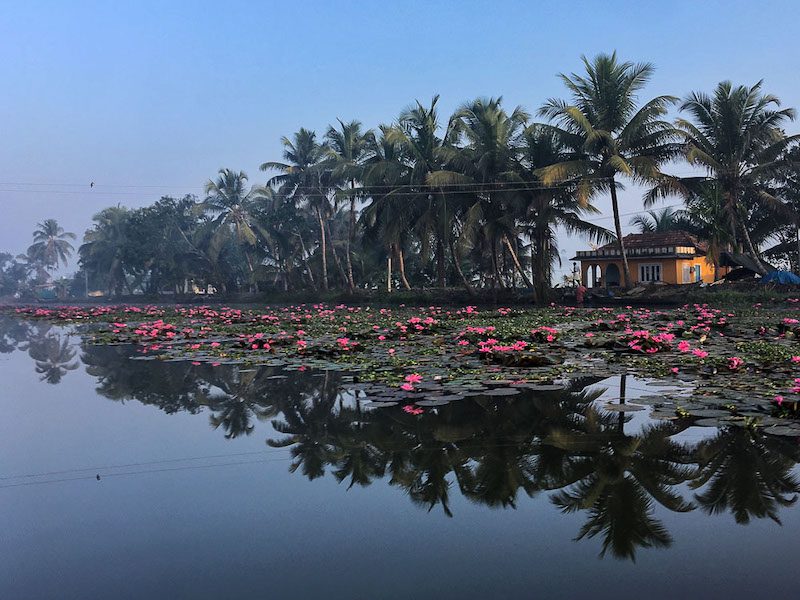
Kerala backwaters / Photo by Mariellen Ward
10. Bora Bora, Tahiti
Recommended by Diana Eden, JourneyWoman writer
As the most celebrated island in the South Pacific, Bora Bora is French Polynesia’s leading lady. There is a serenity in Tahiti that is the perfect antidote to the stress of the modern world. The islands have been ahead of the curve when it comes to sustainability, and the resorts are making major efforts to be self-sustaining. Cruise ships with a capacity of over 3,500 passengers are permitted only to make technical stops and are not allowed to port in some of the islands. Single-use plastic bags are banned, and in a recent trip to Bora Bora I was given aluminum bottles to fill with pure water to drink.
If you’re searching for “awe” moments in one’s life, you’ll have many in Bora Bora. For the first time, I saw a giant manta ray (10 feet across qualifies as giant in my book) swimming slowly and gracefully a few yards from me. I don’t know if it is possible to gasp with a snorkel on, but I think I must have! At soon to be 83, I am not a strong swimmer, yet our dive captain reminded me how to put on the fins and mask, and once in the water, he “towed” my friend and me as we held onto a life buoy. All I had to do was put my head down into the water, control my breathing, and watch these amazing creatures glide in their underwater world.
How to make it a longer stay: Try a Maui wellness retreat with Girls Guide to the World or find a locally owned hotel on Booking.com here.
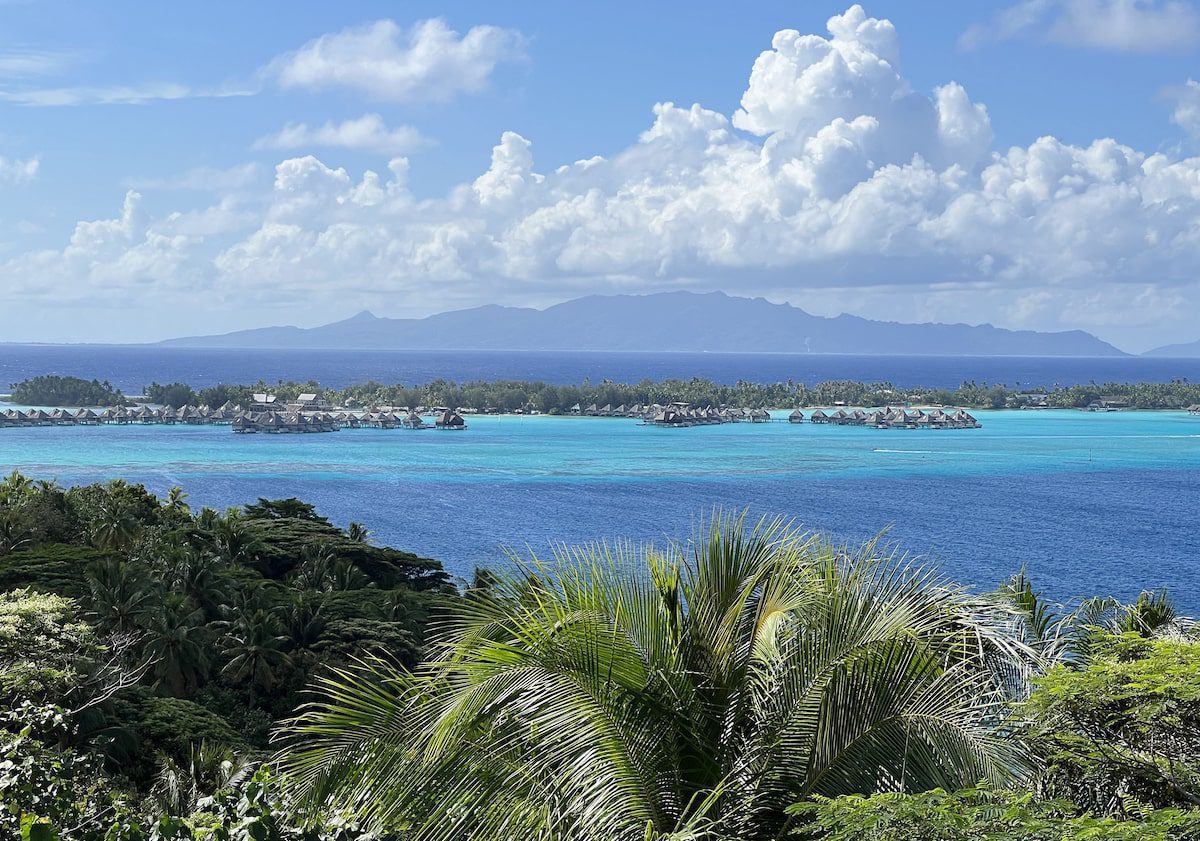
Beautiful shades of blue in Bora Bora / Photo by Diana Eden
11. Perth, Australia
Recommended by Nora Livingstone, JourneyWoman Advisory Council member
Up in the Perth Hills in Western Australia is a small one-bedroom ranger’s cabin in Korung National Park. Surrounded by eucalyptus trees, kookaburras laugh, kangaroos hop, and gloriously not much else.
Three minutes away is a wildlife hospital with parrots, echidnas, swamp wallabies, magpies and more as patients. The residents of this hospital, along with dozens of local volunteers, teach people how to ethically handle and care for their native wildlife, making it a perfect experience for an independent slow traveller because it’s a four-week experience. This is true wildlife rehab. The animal patients will be released back into the wild after their stay at the hospital.
Tucked away from the city and from masses of tourists, this feels like a special paradise where I get to meet a new animal every day, and can prepare food for bandicoots, weigh an emu, clean an echidna pool, feed magpies and more.
How to make it a longer stay: Join a small group tour with Trafalgar or find a local stay with Trusted Housesitters (sign up for an annual membership here.)
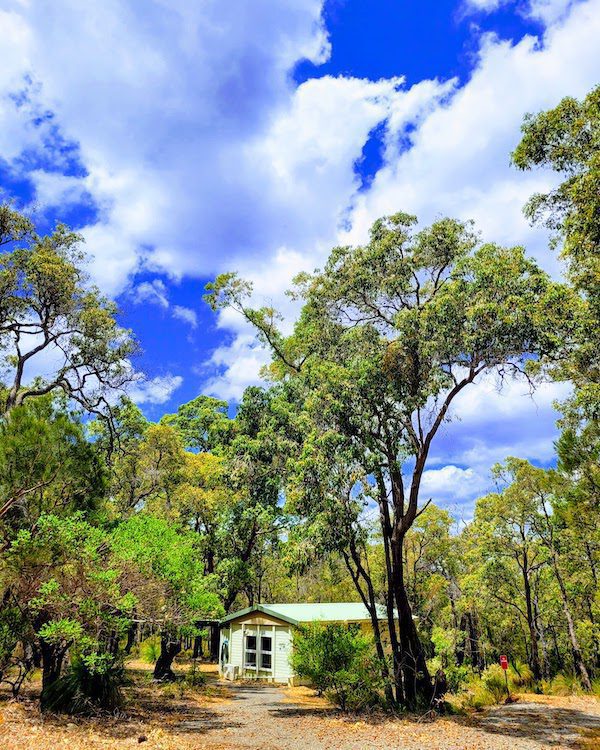
A small cabin in Korung National Park / Photo by Nora Livingstone
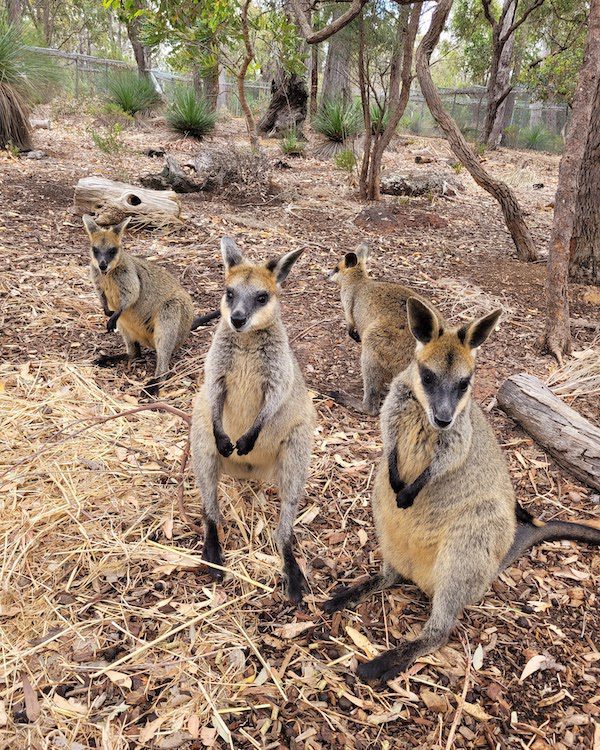
Curious little swamp wallabies / Photo by Nora Livingstone
12. Northland, New Zealand Beaches
Recommended by Rosemary Neave, JourneyWoman Women’s Advisory Council member
At Christmas time in the north of New Zealand, our red flowering Pohutukawa tree signals summer meaning it’s time to head to the beach for a swim, a walk and to camp. Northland – north of Auckland is the place to be in the summer. Avoid late December or January if you can – because school holidays mean that Kiwis are heading to these magnificent beaches. Many visitors to New Zealand only go to the South Island, and others never head north from Auckland and discover this hidden gem.
Plan ahead as there will be pressure on accommodation in the summer. My recommended place to stay is a campground if you have a tent or camper van. Most commercial campgrounds also have cabins. They are usually situated in the best spots where you can walk to the beach or river. Campgrounds are also a great place to meet the locals. My two exceptions are the Copthorne Hotel at Waitangi and The Heads Hotel in Omapere – they are in the heart of places with rich cultural stories.
Northland is rich in cultural stories – February 6th is our national holiday, Waitangi Day and the Bay of Islands is the place to be. If you cannot make it then, the Waitangi Treaty Grounds are a must-visit to learn more about Māori culture and its stories.
How to make it a longer stay: Rent a camper to visit a campground, join a small group adventure with Adventures in Good Company or a weekend retreat with Wanderlust Solo Women’s Travel. Find more New Zealand tours here.
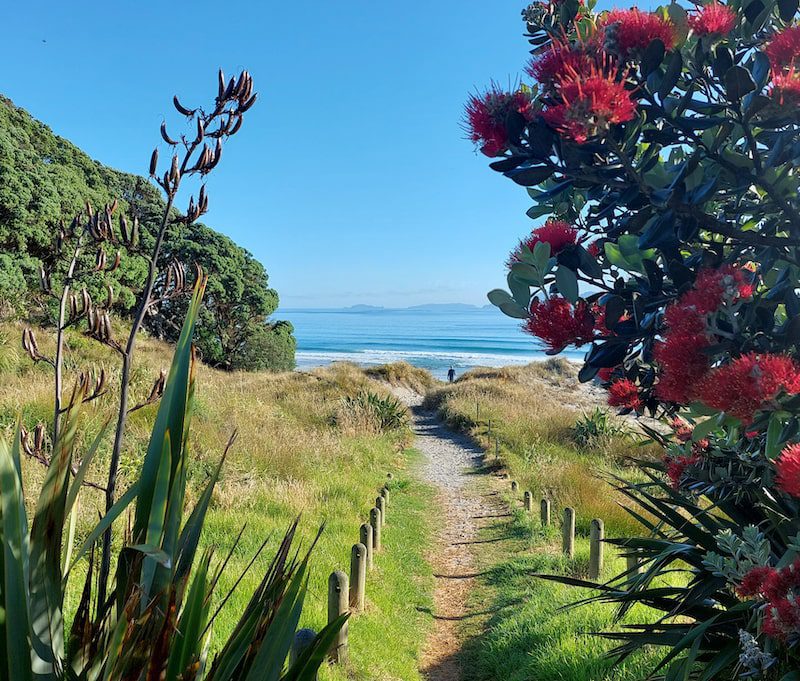
A flowering Pohutukawa tree en route to the beach / Photo by Rosemary Neave
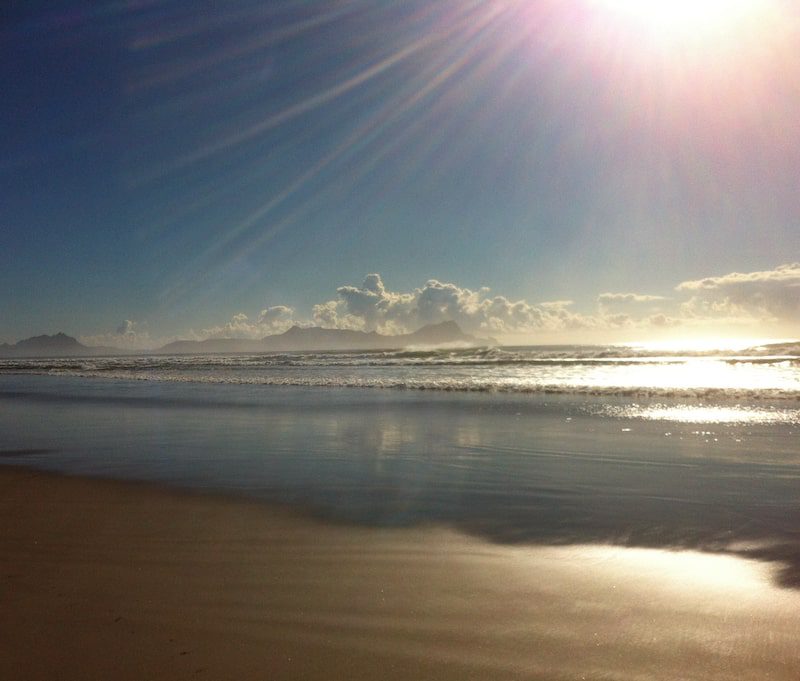
Sun shines over a beach in Northland / Photo by Rosemary Neave
Less-travelled places for women in Africa and the Middle East
13. Istanbul, Turkiye
Recommended by Tanzila Khan, JourneyWoman writer, Accessible Solo Travel
Istanbul, Turkey offers a welcoming atmosphere, safety and accessibility in many places. As a solo traveller in a wheelchair, I discovered that this city is a true testament to inclusivity, with many tourist attractions and public spaces designed to accommodate everyone.
Apart from exploring iconic landmarks like the Hagia Sophia and Blue Mosque, indulge in the vibrant Grand Bazaar, and savor Turkish cuisine in local eateries (don’t miss Adana Kebab). The city’s arts scene, trendy neighborhoods, and world-class hammams offer enriching experiences. Istanbul’s strategic location allows easy access to other captivating destinations like Cappadocia and Antalya. Overall, Istanbul provides a perfect blend of safety, culture, and adventure for women on foot and on wheels.
How to make it a longer stay: Join a small group tour with Adventures in Good Company or Insight Vacations, or embark on an epic journey with Uniworld Boutique River Cruises. Find more tours in our Women’s Travel Directory.
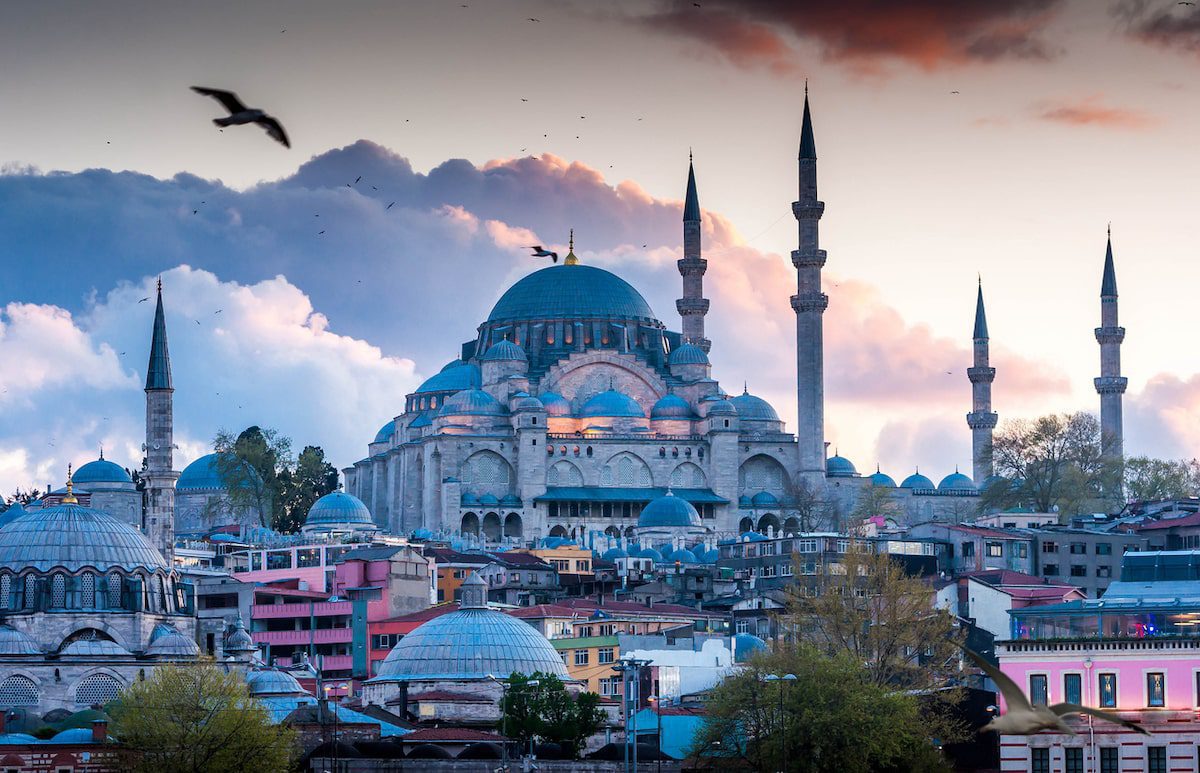
Tanzila Khan discovers Istanbul is welcoming to all / Photo by Seqoya on iStock

14. Cairo, Egypt
Recommended by Dawn Booker, JourneyWoman writer
Any journey through Egypt is more than a physical exploration; it is a spiritual and emotional pilgrimage. Amidst the ruins and relics, there are moments of reflection, prayer, and deep connection.
In Egypt’s bustling capital city, Cairo, you can enjoy stunning views of the Nile and the Giza Pyramids in the distance. Don’t miss the Open Museum in the Ancient city of Memphis, a former Egyptian capital, where the centrepiece is a 3200-year-old figure of former Egyptian ruler Ramses II; it stands tall as a massive 83-ton statue carved from limestone. The awe-inspiring Giza pyramids stand as a testament to the ingenuity of ancient Egyptian civilizations. Have lunch a few steps from the Pyramid complex at KHU FU’S, the first restaurant located directly on the Giza Plateau, with panoramic views of the Giza Pyramids from every table in the restaurant.
Other sights include the Citadel of Cairo, The Hanging Church, and Saints Sergius and Bacchus Church, located in Coptic Cairo, often referred to as Old Cairo. This church is considered to be the site where Jesus, Mary and Joseph lived after their pilgrimage to Egypt.
How to make it a longer stay: Join a small group tour with AdventureWomen or Trafalgar Tours, or a river cruise with Avalon Waterways.
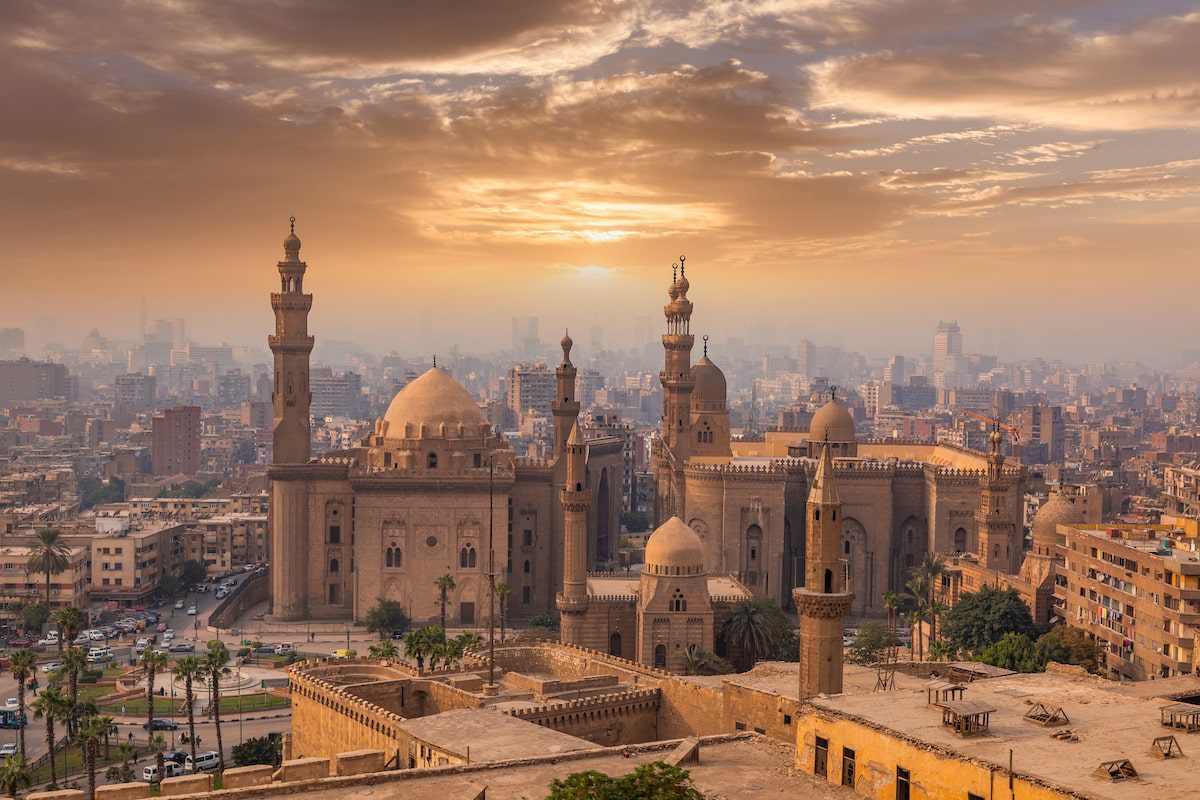
The Mosque-Madrasa of Sultan Hassan in Cairo/ Photo by antonpetrus on Envato
15. Petra, Jordan
Recommended by Carolyn Ray, JourneyWoman editor
Petra, a lost city left to the local Bedouin tribes for centuries, is simply awe-inspiring. It’s a dusty hike through the canyon, or Siq, but it’s magical when the rose pink columns of the Treasury appear, making the 4-kilometre trek worth every step. Petra prospered as a key stop along the spice routes thanks to frankincense and myrrh and thrived as part of the Roman Empire until a massive earthquake in 363 AD. It was then largely deserted and left to the local Bedouin tribes until its rediscovery in 1812 by a Swiss explorer.
Most recently, tombs have been excavated in the front, which causes archeologists to believe that it was a temple. Strolling along the colonnade, the camels, shops and caves with carpet-laden hooka bars, help you imagine what it might have been like in its prime in the first century BC, when traders stopped along this ancient route. Petra will fill your soul with its stories, and inspire you to spend hours and days exploring its past. One note: please don’t ride the camels; most are there illegally and do we really need to sit on animals just for the photo?
How to make it a longer stay: Join a small group tour with 5 Senses Tours Israel and Intrepid Travel or join an expedition ship with Swan Hellenic.

Petra, the UNESCO world heritage city in Jordan
16. Bwindi Impenetrable Forest, Uganda
Recommended by Rupi Mangat, JourneyWoman writer
2023 was the 50th anniversary of Endangered Species Day created in 1973, so what better way to continue to honor this anniversary then to go gorilla tracking in Bwindi Impenetrable Forest in south-western Uganda. The Mountain Gorilla is the only subspecies that is now listed as Endangered from Critically Endangered not because it is the most numerous but because their numbers are steadily increasing thanks to conservation efforts.
It’s bizarre but the world only got to know about Bwindi’s ‘unknown’ gorillas in 1987, and that even not from a sighting but from their droppings below their trees’ nests! In the mid-1990s, there were 300 mountain gorillas in Bwindi and listed on the IUCN Red list as ‘critically endangered’.
Today Bwindi’s population of mountain gorillas is 459 and increasing, mostly thanks to the work of the NGO, Conservation Through Public Health (CTPH) founded by Uganda’s first wildlife vet, Dr Glady’s Kalema-Zikusoka. The global population (found only in Bwindi and the Virunga mountains straddling Rwanda and the Democratic Republic of Congo) is 1,063 and increasing. Tracking for Bwindi’s Mountain gorillas is not only about seeing the Great Ape but also meeting with the custodians of the gorillas – the local communities who share the same space.
How to make it a longer stay: Join a small group tour with Rupi the African Trotter, Mama Tembo Tours, Helping Hand African Tours & Safari, or Baheka Travel.
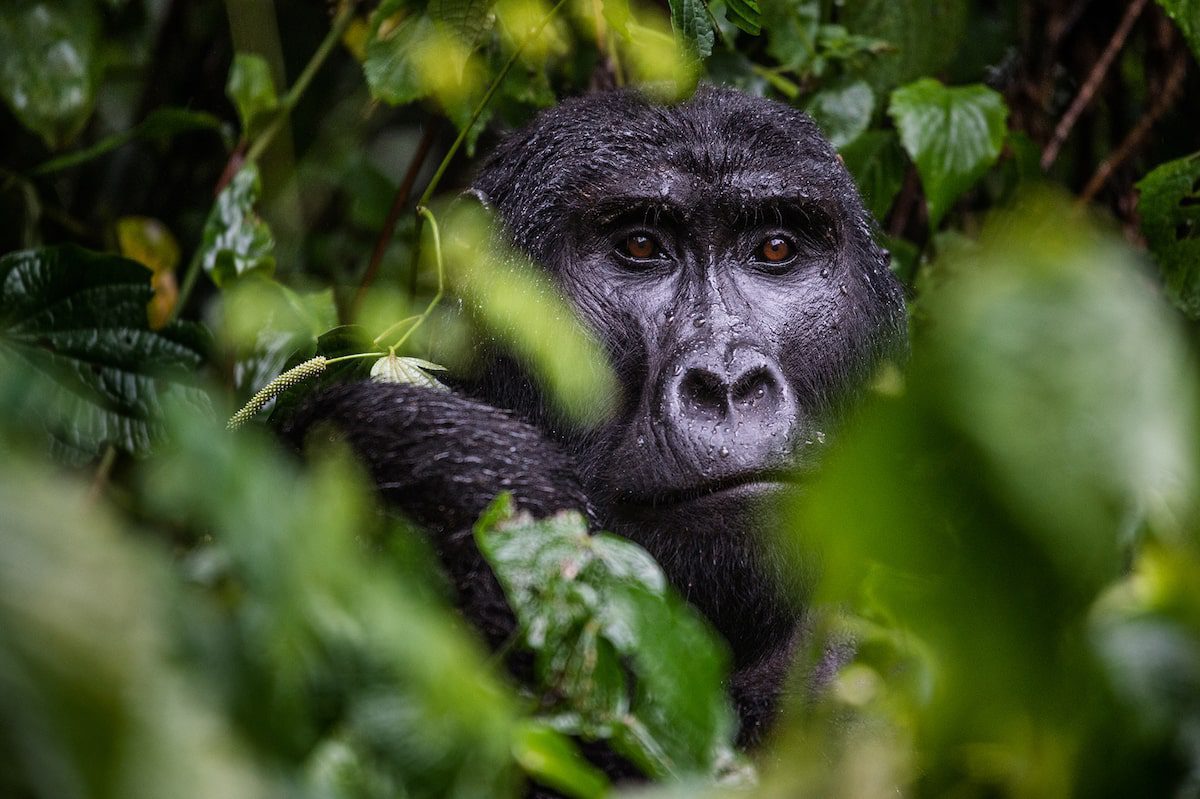
A gorilla in the Bwindi Impenetrable Forest / Photo by Jo Anne McArthur
17. Abu Dhabi, United Arab Emirates (UAE)
Recommended by Karen Gershowitz, JourneyWoman writer + Solo traveller
Abu Dhabi seamlessly blends luxury and culture. This UAE jewel not only has stunning architecture, like the Sheikh Zayed Grand Mosque and Qasr Al Watan Palace but is a Middle East center of culture. The Louvre Abu Dhabi, designed by Jean Nouvel, is worth visiting for the ‘rain of light’ effect created by its intricate dome and its wonderful art collection. The city is also home to other museums, galleries and gardens. There’s great shopping and wonderful restaurants featuring both international and Middle Eastern cuisine.
It’s safe for women and an easy city to navigate. If you’re into relaxing you can unwind on serene beaches or at world-class spas. For anyone willing to go “on the wild side” you can take a dune tour that will get your heart racing.
How to make it a longer stay: Find a locally owned place to stay.
Read More: 12 Cool Small Group Tours for Women in 2024
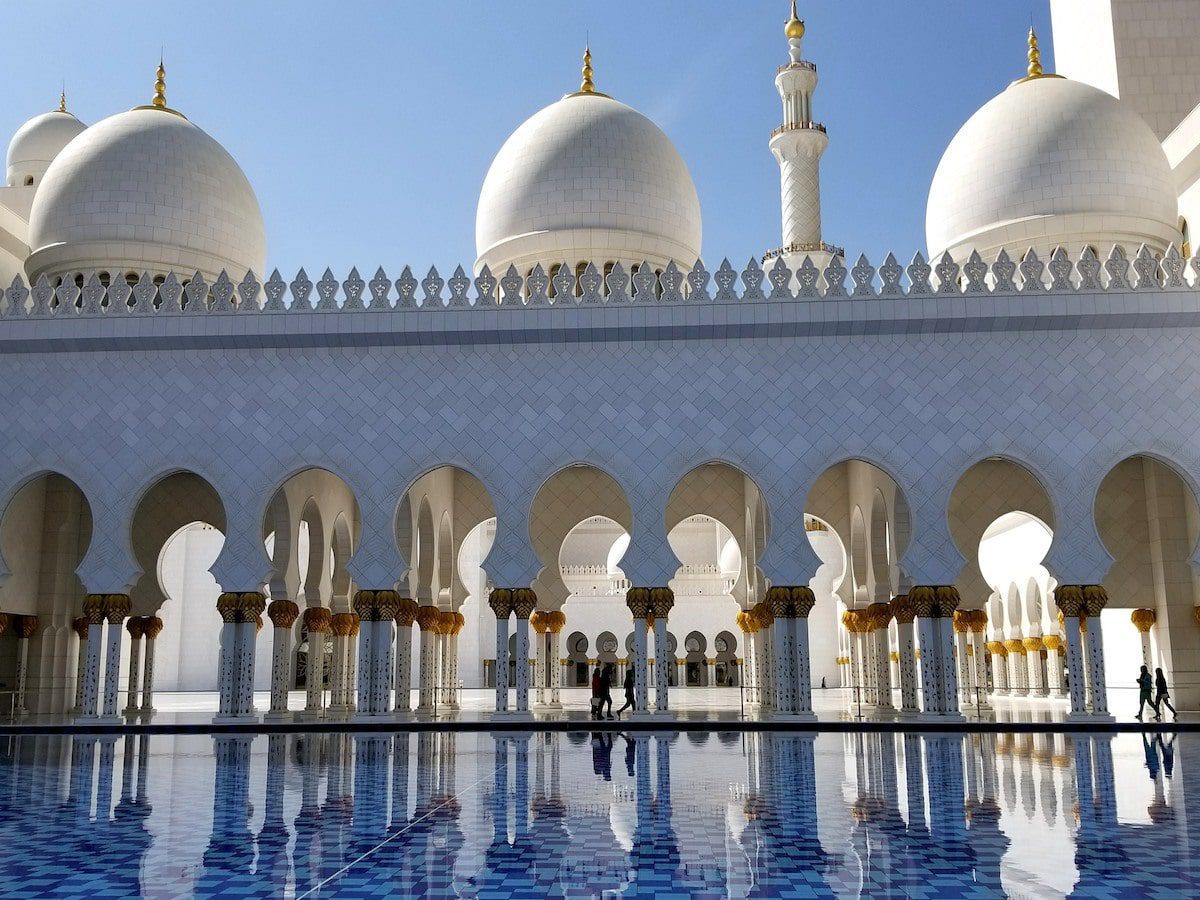
Sheikh Zayed Grand Mosqu in Abu Dhabi / Photo by Karen Gershowitz
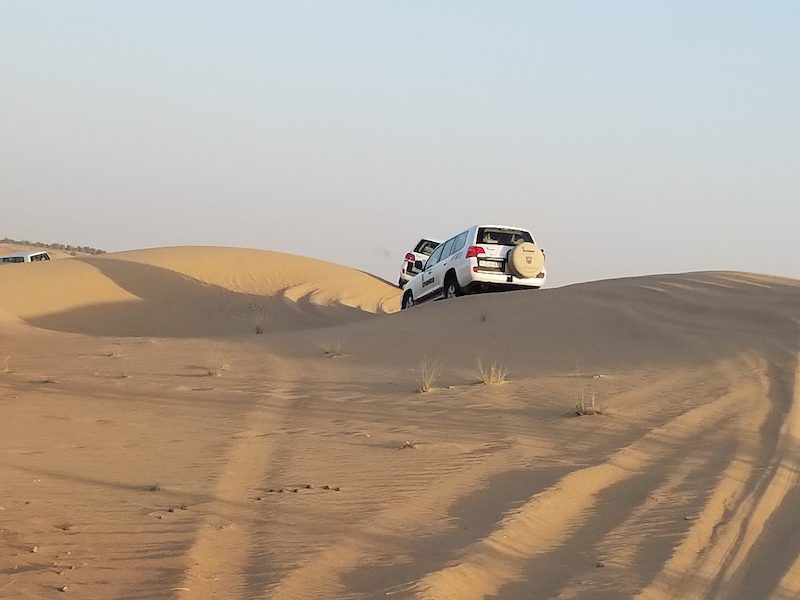
Sand dunes line the desert surroundnig Abu Dhabi / Photo by Rosemary Neave
18. Cape Town, South Africa
Recommended by Leyla Alyanak, JourneyWoman writer + Solo traveller
South Africa is an ideal “summer” destination – with the seasons reversed, a visit between June and August lands you right in the middle of winter, while kids are in school and fewer people vacation. Temperatures can be hot during the day and cool at night, and you may experience a bit of rain. But colours are sharp and wildlife is at its best.
This is whale watching season, and ideal for a photo safari to one of the country’s renowned national parks, like Kruger, remarkably uncrowded this time of year. A drive along the Garden Route is also perfect for avoiding the crowds. This is a spectacular stretch of coastline between the Eastern and Western Cape provinces, dotted with picturesque villages, sandy beaches, and glorious natural beauty.
How to make it a longer stay: Join a small group tour with Wheel the World and Pack Light Global, or board a cruise on an expedition ship with Swan Hellenic.
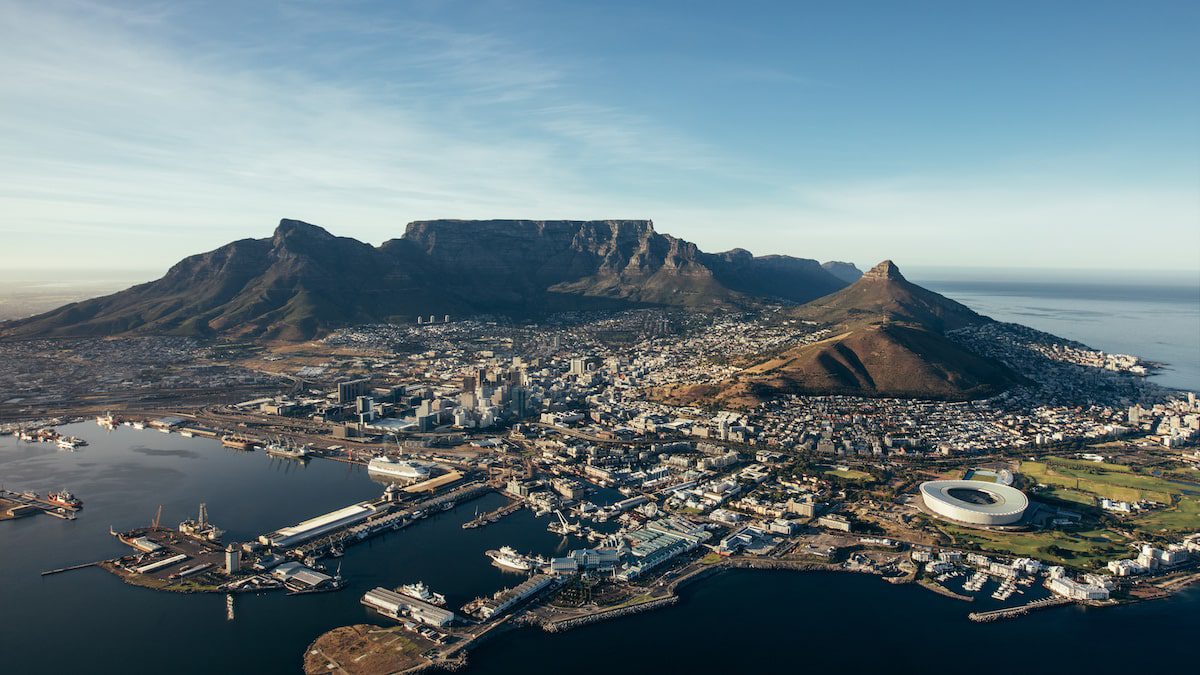
Aerial view of Cape Town with Table Mountain, the harbour, Lions Head and Devils Peak / Photo by jacoblund on Envato
19. Zanzibar, Tanzania
Recommended by Jules Torti, JourneyWoman writer
Zanzibar is where my mind returns to in the narrow space between wakefulness and sleep. Along the eastern Michamvi coast, the mesmerizing Indian Ocean pulls out more than a kilometre, leaving pockets of brilliant red sea stars and black urchins in gin-clear pools. The “Seaweed Ladies” are heard daily, singing as they harvest seaweed at low tide to make soap and spa products. At Jozani Chwaka Bay National Park, the endemic red colobus monkey steals the all-natural show in the canopies above.
Nearby, an exploration of the Mangapwani Slave Caves and coral caverns will leave an indelible mark. A visit to a nearby Prison Island allows for intimate encounters with the resident giant Aldabra tortoises, and you can have a beer in the former jail! In Stone Town, a day must be dedicated to navigating the rabbit’s warren of alleys, 18th-century Arabic and Indian wooden door designs and spice vendors. Sundowners at the Africa House Hotel are a prerequisite – order a “dawa” (a blend of ginger, lime, honey and gin) and grab a front-row seat for the sunset. Be sure to have lunch at The Rock too – it’s a tiny restaurant built on a coral outcrop that you can walk to at low tide, and depending on how long you linger, you may have to take a boat back.
Just a 25-minute flight from Dar es Salaam (Tanzania), this is “soft Africa” – there are no lions or elephants and the incidence rate of Malaria is less than 1%. For a solid sensory fill of curries, birdlife and sensational beaches in western Kendwa, Zanzibar will knock your flip-flops right off.
How to make it a longer stay: Join a small group tour with Aurora Africa, Helping Hand African Tours and Safaris or Intent on Safari.
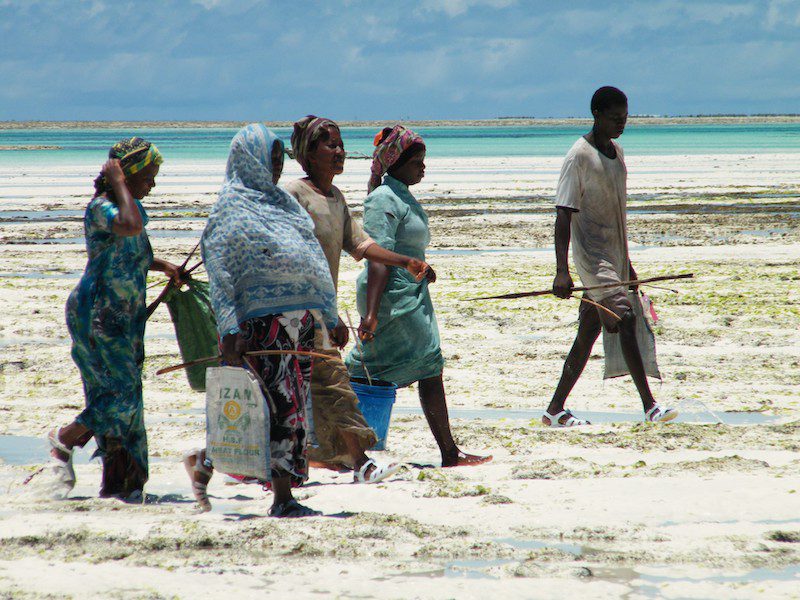
Seaweed Ladies singing and harvesting seaweed / Photo by Jules Torti
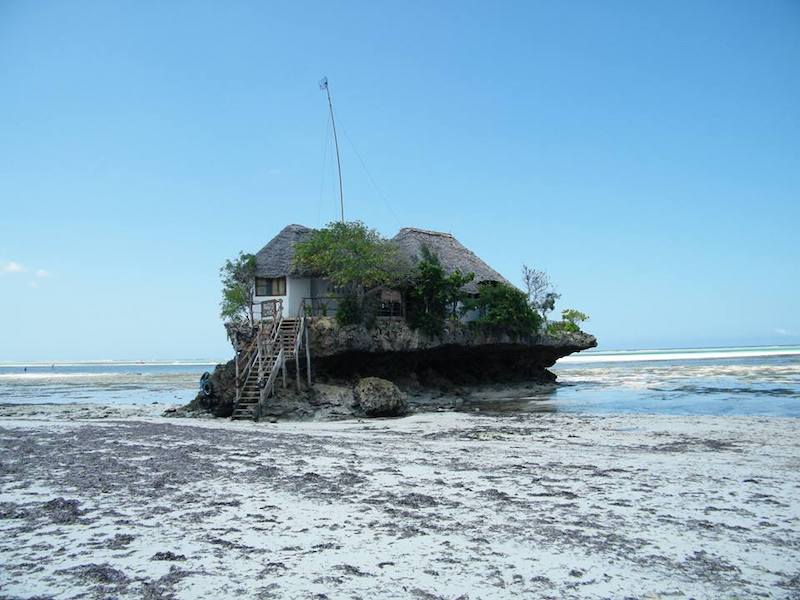
The Rock restaurant, Zanzibar / Photo by Jules Torti
Less-travelled places for women in the Caribbean and Mexico
20. Bequia, Saint Vincent and the Grenadines
Recommended by Tonya Fitzpatrick, JourneyWoman Advisory Council member
At seven square miles and a population of 5,300, Bequia is the largest of the West Indie islands in the Grenadines and means ‘Island of the Clouds’. Unlike Dominica, the island is more laid back and quiet, and a bit of a secret place, especially for scuba divers.
If you love scuba diving, stop by a small dive shop called Dive Bequia, owned by American expats. Bequia offers many white sand beaches in coves, and most are sparsely populated. The area of Port Elizabeth is a good place for activities, local restaurants, and accommodations, including villas, luxury beachside hotels, small family-run inns and guest houses, and self-catering apartments. The Old Hegg Turtle Sanctuary is also nearby and it’s worth catching a boat to Tobago Cays to snorkel with turtles—many that were released from the sanctuary. With direct flights from Canada, the US and Europe, visitors can fly into nearby St. Vincent, Barbados or Grenada, and catch a ferry to Bequia or fly on a smaller plane.
How to make it a longer stay: Find a locally owned hotel here, or join a tour to the Caribbean with G Adventures here.
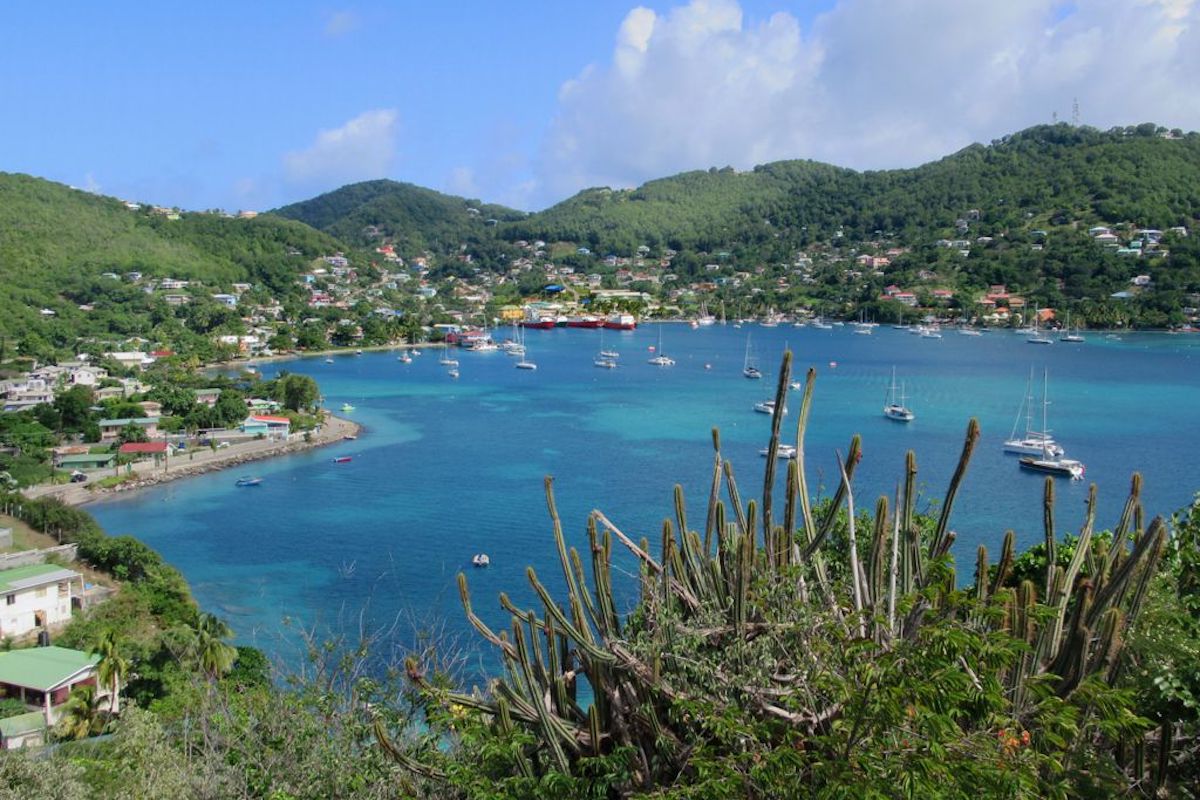
Views of Admiralty Bay on Bequia, Saint Vincent and the Grenadines / Photo by David Stanley via Wikimedia Commons
21. Martinique (French Overseas Territory)
Recommended by Nancy Drolet, JourneyWoman Advisory Council member
As a beach lover, I am drawn to white, golden and pink sand beaches and make no apologies! But without the ability to experience the culture of a destination, a beach alone wouldn’t bring me back for another visit. Martinique now has three UNESCO designations (the entire island is a UNESCO biosphere, the YOLE (which is a type of boat) received cultural recognition, and most recently, Mount Pelée and its sister Pitons mountains in the north were recognized as a World Heritage Site.
From the 1902 volcanic eruption which destroyed Saint-Pierre (now a vibrant coastal city worth exploring), to the museums and monuments showing the impact of slavery, to the birthplace of Josephine (Bonaparte’s first wife), Martinicans embrace their history through the preservation of forts and churches. There are multiple indoor/outdoor museums, art galleries, gardens, national parks, and hiking trails to enjoy as well as markets in every small town. The largest market of course is found in the capital of Fort-de-France where one can buy fruits and vegetables, seafood, spices, clothing, art…the list goes on.
Scenically beautiful yes (this is the ‘Island of Flowers’ and it is lush), but with an amazing infrastructure, this French overseas territory has pristine roads (no potholes!), signage, guard rails, bus shelters and posted schedules, top-notch hospitals and medical system. Did I mention that the Caribbean Tourism Organization voted Martinique as one of the safest places to go? There is also a new direct, non-stop flight from ‘English’ Canada, thanks to Air Canada. Martinique enjoys a year-round average temperature of 27C – but it is more humid and rainy in the summer months.
How to make it a longer stay: Stay at a locally owned hotel like La Pagerie or find a tour to the Caribbean on the Women’s Travel Directory here.
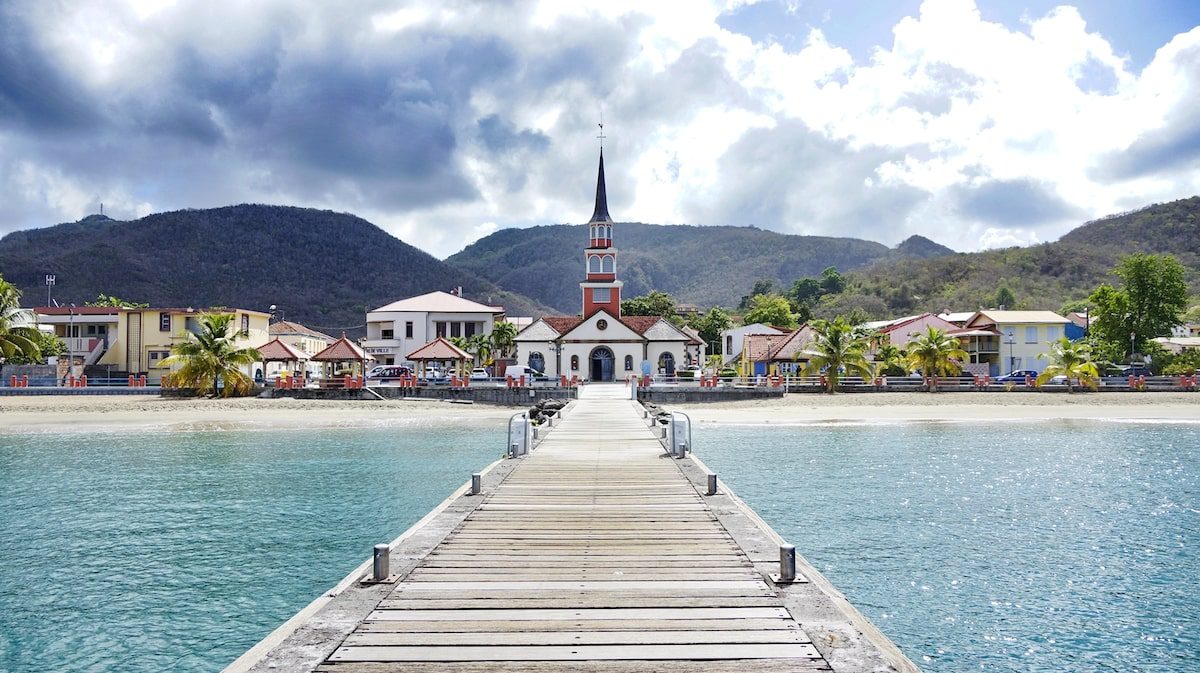
They are beautifully preserved churches in Martinique, like this one in Les Anses-d’Arlet / Photo by wirestock on Envato
22. Oaxaca, Mexico
Recommended by Carolyn Ray, Editor, JourneyWoman
There are many places in Mexico that are safe for women and longer stays, but the standout for me is Oaxaca. Known as the ‘land of seven moles’, its reputation as a gastronomic centre is well-deserved, with an overabundance of restaurants serving fresh and delicious cuisine that ranges from tomatoes to sushi to street food to mezcal.
While there is much to experience here in terms of museums and history, the beating heart of Oaxaca can be found in its villages, where you can meet women weavers, chefs and entrepreneurs. Wandering Oaxaca is a joy, with vibrant street art, parades, festivals and weddings. Don’t be surprised if you’re invited to join the celebrations!
Oaxaca is also home to what was once the largest and most important metropolis in North America – Monte Alban – and the nearby calcified waterfalls of Hierve el Agua will take your breath away. Puerto Escondido and Huatulco are a short ride away over the mountains, with stunning, untouched beaches perfect for sea and turtle lovers. With a temperate climate (warm in the day, cool at night) there is much to see in Oaxaca, with spring and fall being the best time for off-season travel.
How to make it a longer stay: Join a small group tour with Cosa Buena or Intrepid Travel and go into the villages. Take a short flight to Puerto Escondido and volunteer with turtles.
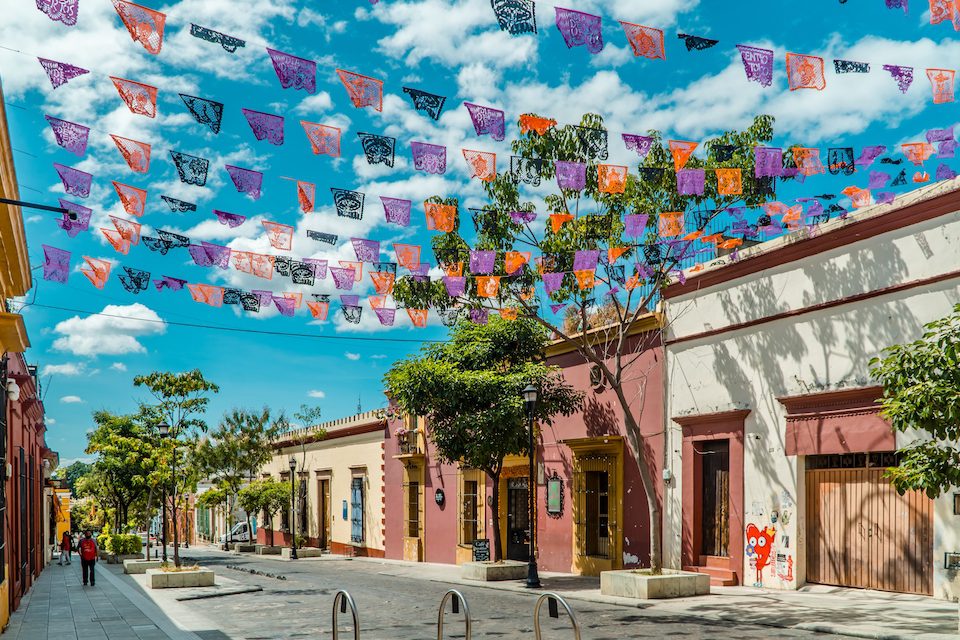
The colourful streets of Oaxaca, filled with vibrant art Mexico
Less-travelled places for women in South America
23. Ecuadorian Andes
Recommended by Carolyn Ray, JourneyWoman Editor
With the Galápagos Islands on the coast, and Amazon on the interior, Ecuador surprises at every turn. But it’s deep in the Andes that its vibrance comes to life. Volcanoes dominate the Andes, and every Ecuadorian you meet knows them all by name, and their stories. Chimborazo is Ecuador’s highest peak at over 20,000 feet (6263 m) and Cotapaxi is close behind at 19,637 feet (5897 m). Reaching even the mid-way point of these two volcanoes will leave you breathless but inspired, as long as you anticipate and plan for the altitude.
Skip Quito and stay at the generations-old family-owned hacienda Tierra del Volcán, near Cotopaxi Volcano. Since opening it to visitors in 1999, owners Maria and Jorge have transformed it into a transformational and sustainable retreat place, with local food, providing new career paths to many in the community. Even if you don’t know what to expect, try Maria’s equine therapy with one of the well-trained and beautiful horses.
About four hours south of Quito, Guamote is a small Indigenous community of about 5,000 people that reminds us what community really means. The town is famous for its weekly Indigenous market. Stay at Inti Sisa Art Guesthouse, which offers rooms and programs for tourists (including local female shamans), as well as visits to its adjoining Inti Sisa Foundation, which operates a kindergarten for children from the community. The Ecuadorian Andes is a magical place, allowing one to slow down, look up at condors floating above your head and just breathe.
How to make it a longer stay: Create a unique travel experience with Rebecca Adventure Travel, head out to the Galápagos with Divine Destinations, or join a small ship experience with Intrepid.
Read More: Read more about Ecuador here
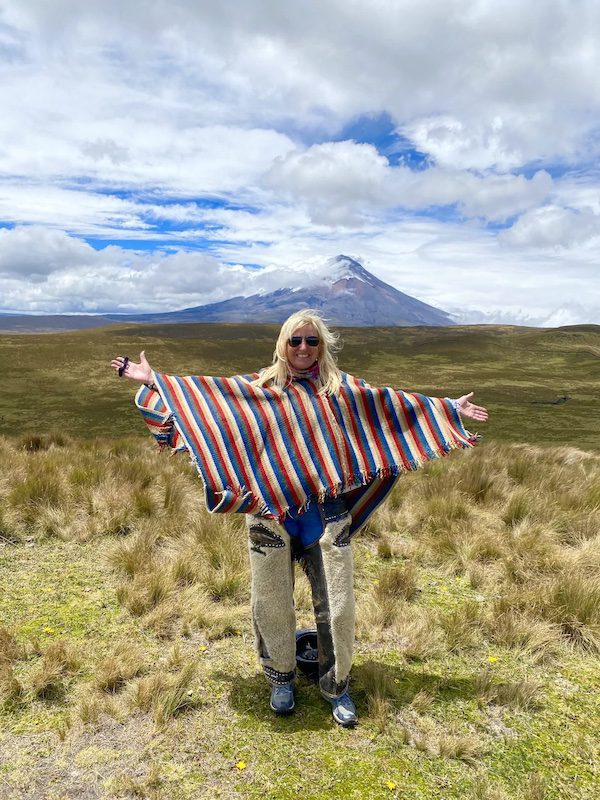
Horseback riding up to Cotapaxi Volcano in August 2023/ Photo credit Carolyn Ray
24. Medellín, Colombia
Recommended by Carolyn Ray, JourneyWoman Editor
Once the world’s most dangerous city, Medellín has mastered the art of accepting its past with grace but moving forward with courage. Cultural change takes time, courage and powerful, honest storytelling — this city has spent the last 20 years rebuilding and reinventing. Across this city of four million people, there are signs of hope and renewal, from Parque Inflexion to Comuna 13 to Moravia. In 2022, Medellin won a prestigious award for South America’s leading emerging tourist destination from the World Tourism Market.
One of the changes Medellín has made is to acknowledge the victims of violence, instead of the perpetrators. In 2019, the condominium building belonging to one of Colombia’s biggest drug dealers was demolished, and the Parque Inflexión was created. This public park is a quiet place where people walk their dogs past a long wall that has 46,212 holes in it to represent each victim. At night, the holes are illuminated, creating a lasting memory.
Moravia, once the city’s landfill, was declared a public disaster in 2006. But then, the residents joined together and found a way forward, unleashing a creative, thriving community. Women like Cielo Maria Holguín Ramírez, Angela Ramírez and María Lucila Pérez, known as ‘Mamá Chila’, are leading the way and now, Moravia is becoming a place of hope and opportunity. Another place undergoing transformation is Comuna 13, an area once inhabited by the paramilitary, where steel fences pocketed with AK47 holes remind a passerby of the past. In 2011, escalators were installed, opening access to this area and creating a model for urban planning around the world. Bars, restaurants, shops and art galleries pepper the route, which also provides stunning views of the entire city and stunning graffiti. Medellín shows us that while we cannot forget the past, it is possible to hope, dream and take action for a better world.
How to make it a longer stay: Make your way north to Panama’s Old Town or Nicaragua for an off-the-beaten-path adventure.
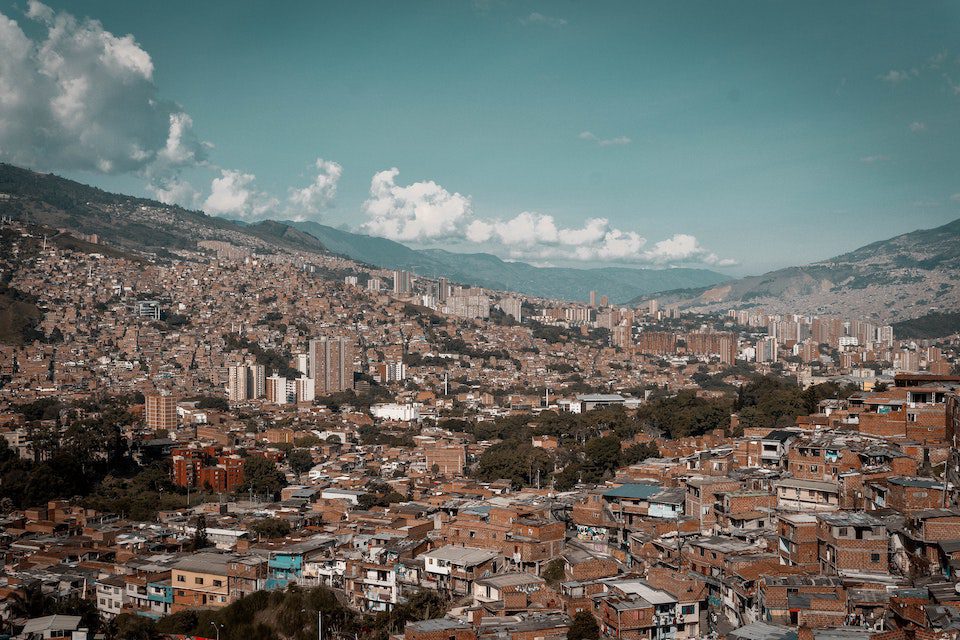
Overlooking the sprawling city of Medellín, Colombia / Photo by Bryan Bravo on Unsplash
Less-travelled places for women in Europe
25. Haugesund, Norway
Recommended by Kathy Buckworth, JourneyWoman writer
The bustling city atmosphere of Oslo and the feel of a tiny fishing community like Olden come together when walking through the streets of Haugesund, Norway, a village of 38,000 in the southwest. Home of the Norwegian Film Festival since 1987, plus many other arts-based festivals, there is a cosmopolitan air to this Viking settlement, particularly along the waterfront where bars and restaurants fuel an energetic nightlife.
Visitors stroll past “Our Marilyn”, a statue of Marilyn Monroe on the water (Haugesund is thought to be her ancestral home on her father’s side) before heading to the one-kilometre long pedestrian shopping area (Skaregata) with over 150 shops and restaurants. School children are often found walking through town in matching pinafores, and music can almost always be heard on the streets. Haugesund is a rare place of ancient history and modernism and well worth a day’s visit while on one of the many cruise ships that dock there (including Cunard), or a short inexpensive flight from Oslo.
How to make it a longer stay: See the Northern Lights on an expedition ship.
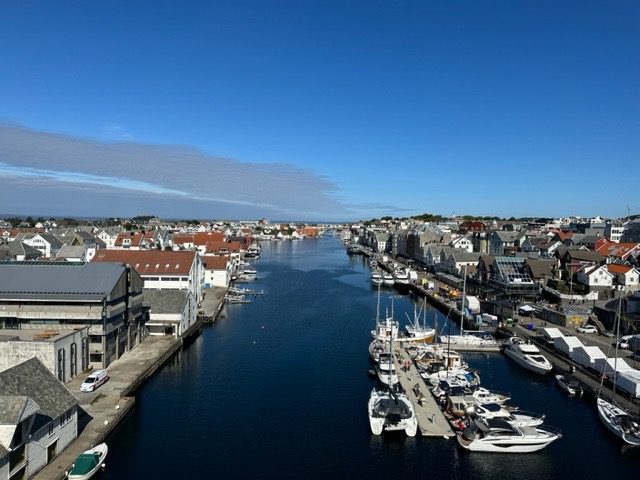
Overlooking the village in Haugesund, Norway / Photo by Kathy Buckworth
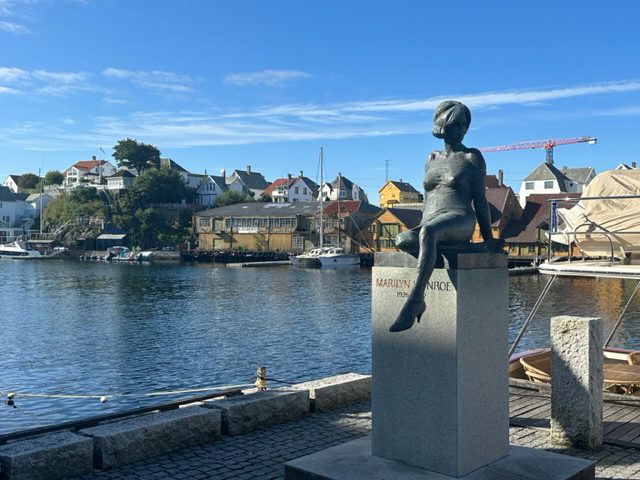
“Our Marilyn” statue in Haugesund Norway / Photo by Kathy Buckworth
26. Basque Region, France
Recommended by Leyla Alyanak, JourneyWoman writer
It’s easy, when visiting France, to get waylaid by the romance of Paris, the history of the Loire Valley, or the warm scents of Provence. As the country gears up for the 2024 Paris Olympics this summer, some quiet, delightful corners of France may look awfully appealing.
Take the French Basque country in France’s southwesternmost corner, a mixture of unique culture, extraordinary food, delightful beaches and fishing villages, and an authentic, untouched interior with some of the most beautiful villages in France. Start in Bayonne and make your way down to the Spanish border. If you’re driving, you can also visit the interior, or stick to the coast if you’re travelling by train. Either way, an increasing number of foreign visitors are heading for this remote corner of France – but we’re still far from the crowds found along the Mediterranean coast. Design your own itinerary here.
How to make it a longer stay: Take the train to France or Spain and find a culinary tour from European Experiences or Bold Spirit Travel.
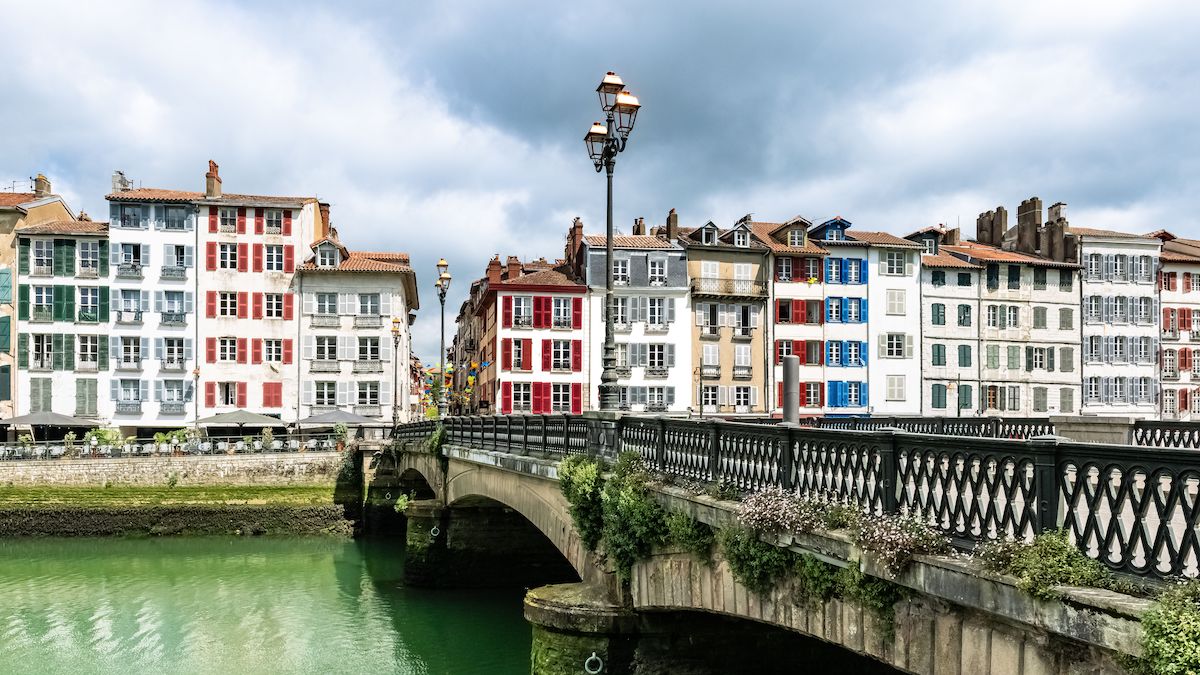
Colorful facades in Bayonne, Basque Region / Photo by wirestock on Envato
27. Splitska, Brač, Croatia
Recommended by Christine Winebrenner Irick, Host, Soul of Travel Podcast
Just a short ride from Split, the second most populated city in Croatia, you can find yourself on Brač Island. Most travellers stay in Supetar or Bol, but a somewhat hidden, and less-travelled gem is Splitska. It is an ancient village with a year-round population of less than 400 people. In ancient times, there was a port that served to export the Brač stone which the area is known for and was used to build Diocletian’s palace in Split. While there are no hotels, there are private rooms and apartments, allowing you to really feel a part of life here. The village has three restaurants and a small market.
While in Splitska, spend a day at a favourite local beach. That evening, you’ll likely find yourself saying hello to some of the same families as you grab a takeaway pizza (get the local olives) or groceries. You’ll notice that you are truly surrounded by locals as 90% of the current population of Brač is made up of people who were born on the island. After just a few days you’ll easily feel yourself settling into a slower pace as you walk from your guest room to the town, in awe of the landscape and seemingly unnatural beauty of the vibrant sea. It will be tempting to spend your days quietly enjoying village life. However, you should plan for a day or two of exploring the island and visiting Blaca Hermitage (Cave Monastery), Dominican Monastery, the village of Skrip, Murvica, and Dragon’s Cave. If you love a quiet town but this is a little too quiet, check out the neighbouring town of Postira, which has a few more restaurants, and a 4-star hotel.
How to make it a longer stay: Join Broad Escapes or Root44 for a Culinary Tour, or a small group tour with Insight Vacations or join a small ship adventure in Dubrovnik.
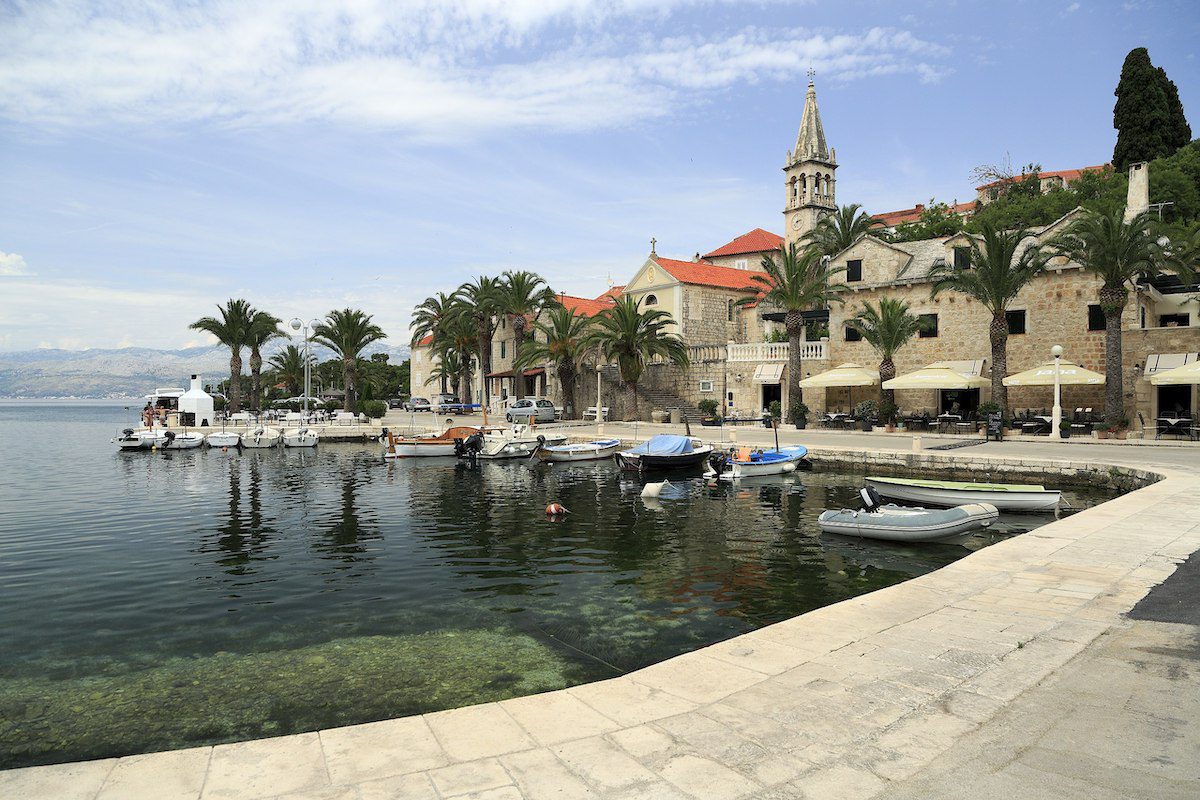
Seaside views in Splitska, Brač, Croatia / Photo by Falk2 via Wikimedia Commons
28. Málaga, Spain
Recommended by Carolyn Ray, JourneyWoman Editor
Imagine bustling markets and cafes. Sunshine every day. Warm ocean breezes. Gothic churches and archaeological ruins. Museums housed in stunning palaces. Quaint shops and friendly Malagueños. This is the oceanside port of Málaga in Southern Spain on the Costa del Sol. Málaga is an ancient city, built by the Phoenicians and was Muslim for almost 800 years. In recent years, this vibrant city is starting to become known as an arts and culture hub, with its museums, Calle Lagunillas street art and archaeological sites like the Alcazaba Fortress and Gibralfaro Castle.
Spend a few hours (or days) at the Museum of Málaga, the fifth largest museum in Spain, housed in the stunning Palacio de la Aduana. This museum holds over 15,000 archaeological artifacts dating back to Málaga (Malaka) Phoenician times. The Museo Picasso Málaga, which opened in 2003, has an archaeological site in its basement with Phoenician and Roman remains, including part of the original city wall.
Although there are iconic restaurants that people say you ‘must visit’, like El Pimpi, don’t miss the Mercado Central de Atarazanas, or Casa Lola on Calle Granada, near the Picasso Museum. For those looking for a longer stay, Málaga is the perfect hub, with easy access to smaller towns via bus or train, like Ronda, Nerja, Frigliana, Cordoba, Granada and Seville.
How to make it a longer stay: Take the ferry to Morocco and join a small group tour or take a walking tour in Spain with Walking Costa Brava.
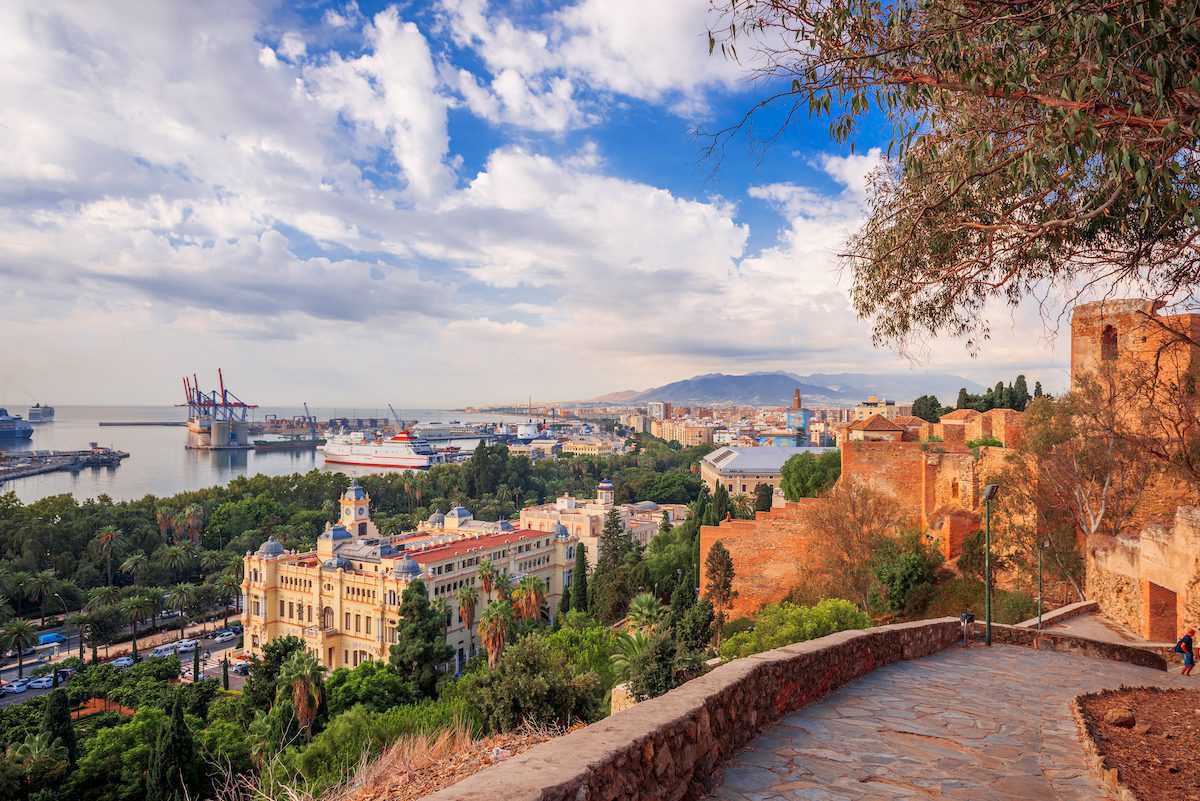
Views of the Málaga cityscape from Alcazaba citadel / Photo by SeanPavone on Unsplash
29. Edinburgh, Scotland
Recommended by Carolyn Ray, JourneyWoman editor
Even in the winter, Edinburgh is one of those magical places that can be enjoyed year-round. With its medieval Old Town, historic buildings and music and literary festivals, it’s no surprise that Edinburgh has been named one of the world’s best places to visit, the best urban destination for a holiday by National Geographic and the UK’s second best city, after London, by Conde Nast Traveller.
Take the Lumo electric train from London’s King’s Cross Station through beautiful countryside along the coast to Edinburgh’s Waverly Station, and walk to a boutique hotel in Edinburgh’s old town. The capital of Scotland since the 15th century, Edinburgh is the seat of the Scottish Government, the Scottish Parliament, and the Palace of Holyroodhouse, the official residence of the British monarch in Scotland, and the Royal Mile.
The Old and New Towns of Edinburgh were inscribed by UNESCO as a World Heritage Site in 1995, making a stroll down the Royal Mile essential, with Edinburgh Castle at one end and the Palace of Holyroodhouse at the other, resting in the shadow of Arthur’s Seat.
The home of world-famous writers, poets and playwrights including Arthur Conan Doyle (Sherlock Holmes), Sir Walter Scott (Waverley), and JK Rowling (Harry Potter), Edinburgh has a remarkable literary heritage. In 2004, it was crowned the world’s very first UNESCO City of Literature and it has its own Poet Laureate, the Edinburgh Makar. In August, the city hosts the Edinburgh International Book Festival, the world’s largest literary festival. Less than an hour from Edinburgh by bus (or 20 minutes by car), the 15th-century Rosslyn Chapel is in the village of Roslin, Midlothian, Scotland.
How to make it a longer stay: Travel by train and explore Scotland’s smaller villages our join a small group tour or expedition trip here!
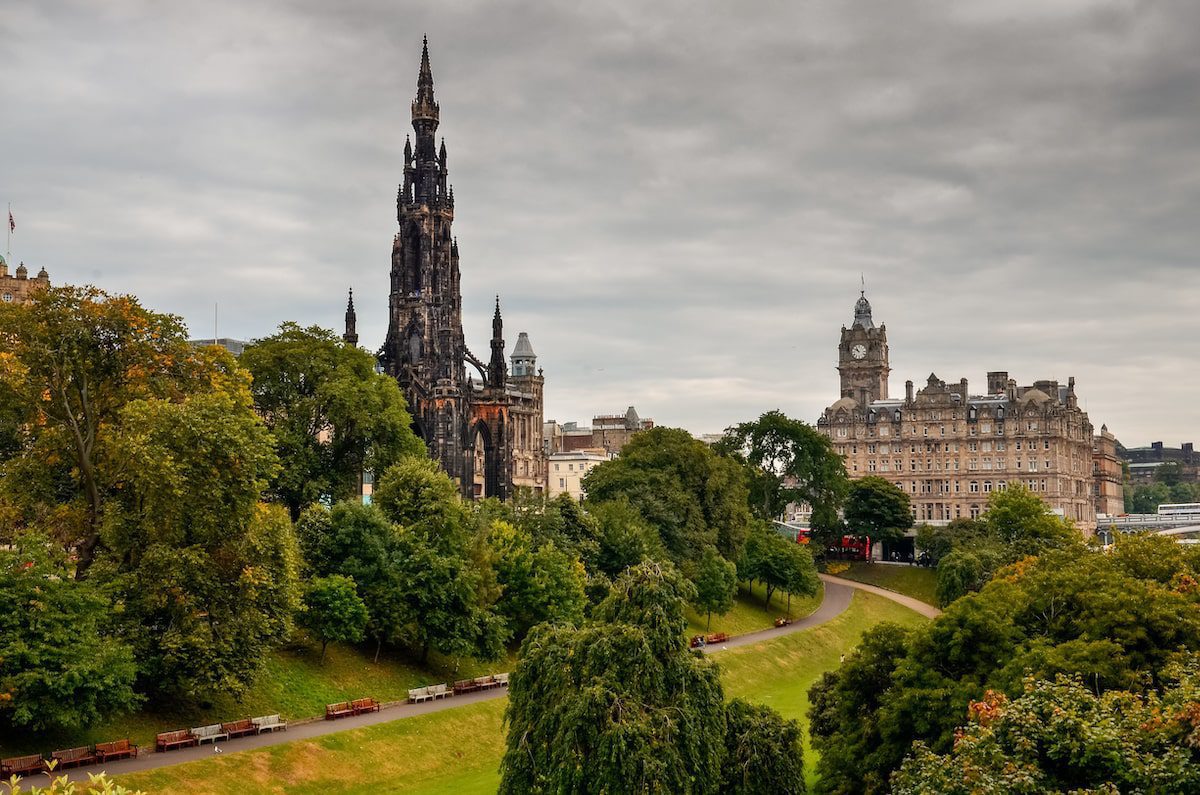
Edinburgh, Scotland is a great destination to visit in the off-season / Photo by martinm303 on Envato
Less-travelled places for women in 2024 … one final place to explore
30. Your own neighbourhood
Recommended by Rue Mapp, CEO, Outdoor Afro and 2023 JourneyWoman Award winner
I have had the pleasure and privilege to have travelled to some of the most far-flung places on the earth, observing many in continuous change as a landscape, as well as those affected by the impact of human behaviour and climate.
Right now in my life, I have become exceptionally focused on and enamoured by the neighbourhood – because it’s where you live, and have the ability to have the most direct impact on your day-to-day life. A healthy neighbourhood connection also offers the possibility to have a reverberating positive effect throughout all of society. Starting with your neighbours – do you know who they are? Do you ever spend time talking, or breaking bread with the people who live all around you? Do you go out to walk in your neighbourhood and observe the seasons through the changing foliage, flowers, fruits, and wildlife you observe? How about your local park?
What I have found through my work of reconnecting people to the outdoors is that too many of us do not know about all of the richness of the environments that are often very close to home, and where we can make a positive, conserving difference right away.
More Less-Travelled Destinations to Discover
Where to Travel in 2025: The Best Places for Solo Women Travellers Over 50
Wondering where to go solo in 2025? We’ve applied our own criteria to 10 places that inspire travel and discovery for solo women travellers.
Swimming with Whale Sharks in Mexico’s Galapagos: Adventures in La Paz, Baja California Sur
A once-in-a-lifetime experience swimming with whale sharks in La Paz, Mexico, reminds us to trust ourselves and the universe.
Delft, The Netherlands: A Charming City of Vermeer, Ceramics and Cafes
Known as the birthplace of Vermeer, Delft is a smaller, lesser-touristy version of Amsterdam, with scenic canals, ceramics and cafes.

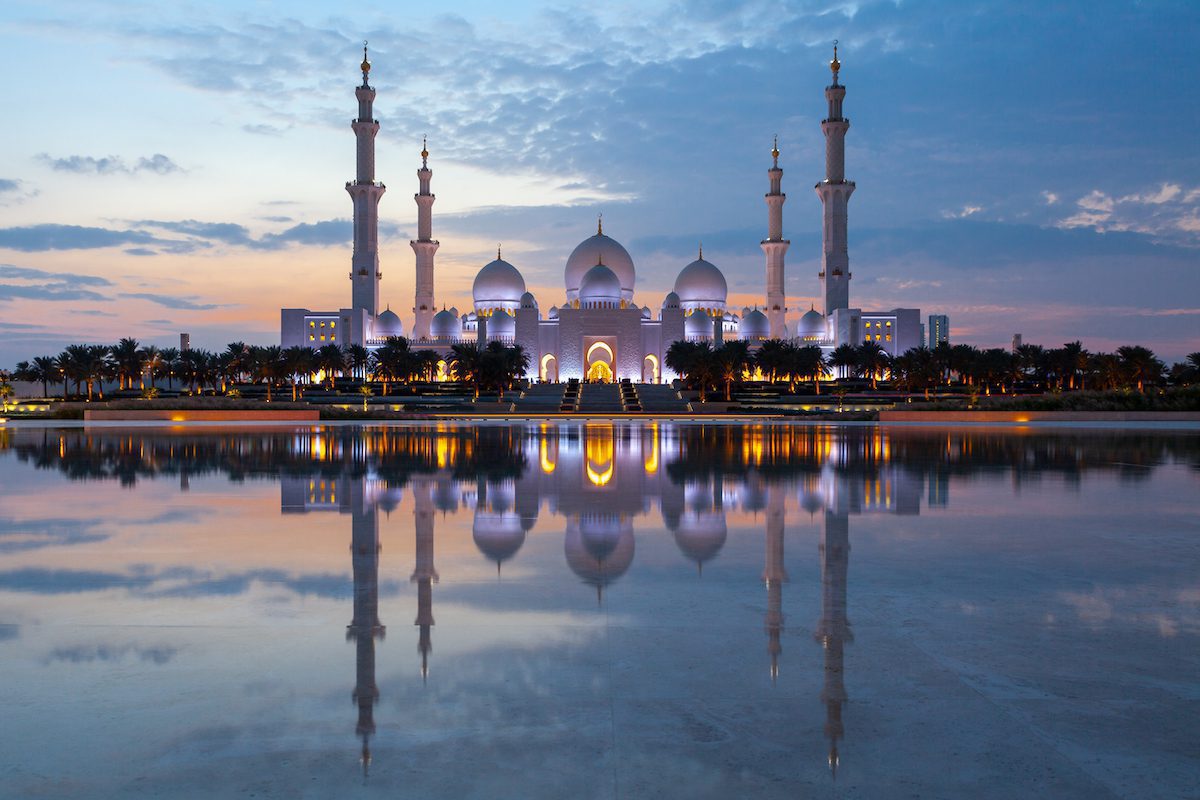




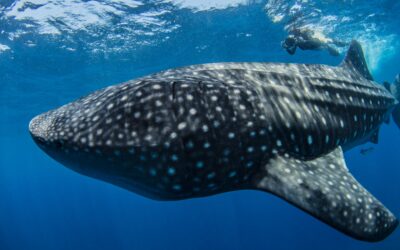
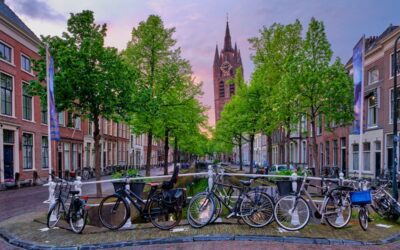
A marvellous comprehensive list, it was a joy to read. I just turned 81 and appreciate your attention to the needs of elders. I am still recovering from the loss of my beloved woman life partner. She was my family. But now I am re-entering life.Before that calamity struck I volunteered, doing sexual violence work with girls and women, 6 different years in Lesotho, southern Africa, a magical high mountain kingdom with welcoming people. I don’t suggest it because it lacks enough infrastructure for travellers to manage with ease. I went to Cape Town and loved it, may go again.
I love the wild beauty of oceans so am not ready to give them up for rivers, sad as they may be now.
Two additions to your list I would consider, Jasper, as part of your excellent Rockies suggestion. Jasper Park Lodge is a wonderful place to stay In any season. Swimming in their outdoor heated pool after dark in heavy snowfall was one of life’s highlights. Bhutan is my other suggestion which I visited and trekked in 1991; it is a sublimely beautiful country. I think you perhaps have a trip there already. Thank you again for this excellent site. – Nadia Hyde
Reading this list has made me even more appreciative of what I have been lucky to see so far in my long life. I’m not a fan of hot weather and beaches so my island visits are limited. Yes to Acapulco, Puerto Vallarta, Mexico City and Cuernavaca, St John and St Thomas, Oahu, Kauaii, Arctic, Antarctica, Eastern Africa South Africa, Botswana, Tanzania, Zimbabwe.Former Swaziland, BorneoBrunei, Hiroshima, Nara, Kyoto, Singapore , China 3 times, eastern Australia, North and South Islands of New Zealand, Istanbul, Thailand, every country in Europe except Iceland , Estonia , Latvia and the Pyrenees , eastern Canada, Morocco ( the only place I’ve been sexually harassed (twice)) the only bucket list places I’ve missed are Alaska and the Canadian Rockies. I didn’t get my first passport until I was 40!
I visited Hiroshima earlier this year and really enjoyed it! The Peace Memorial Park was beautiful, and the city itself is wonderfully international. Hiroshima is famous for its okonomiyaki which is delicious, but I also had some great Indian food there! The hop on-hop off bus (aka Meipuru-pu) is great way to get around town, and very cheap at only less than $5 for a day ticket. I met some nice fellow tourists on that bus, too!
My favourite less travelled place did not make the list – perhaps because so few people go there – The Copper Canyon in Mexico. The journey down into the canyon is an experience I will always remember . . .
Thank you, Carolyn for your comprehensive list. I have visited many of the places and have plans to travel to some of the best places to visit on my bucket list. I have increased my UNESCO site visits to over 100 visits. Your article added to my list because I did not know that some of the UNESCO sites noted in your article have increased my own list because I did not know they were considered UNESCO sites at the time of my travels to these places. Keep on Traveling!
Nanci J Kersch
Travel Addict